#Rejection of religion due to unfairness of the world.
Explore tagged Tumblr posts
Text
Echoes of Darklina
Six of Crows- Chapter 18
Kaz's chapter became more interesting than expected.

“Why would you care what I think?” He looked genuinely baffled. “I don’t know,” he said. “But I do.” And then he kissed me. It happened so suddenly that I barely had time to react. One moment, I was staring into his slate-colored eyes, and the next, his lips were pressed to mine. I felt that familiar sense of surety melt through me as my body sang with sudden heat and my heart jumped into a skittery dance. Then, just as suddenly, he stepped back. He looked as surprised as I felt. “I didn’t mean … ,” he said.
Shadow and Bone- Chapter 13

“... The people curse my name and pray for you, but you’re the one who was ready to abandon them. I’m the one who will give them power over their enemies. I’m the one who will free them from the tyranny of the King.” ... I gave a single shake of my head. He slumped back in his chair. “Fine,” he said with a weary shrug. “Make me your villain.”
Shadow and Bone- Chapter 21

... The moment his lips met mine, the connection between us opened and I felt his power flood through me. I could feel how much he wanted me—but behind that desire, I could feel something else, something that felt like anger. I drew back, startled. “You don’t want to be doing this.” “This is the only thing I want to be doing,” he growled, and I could hear the bitterness and desire all tangled up in his voice. “And you hate that,” I said with a sudden flash of comprehension. He sighed and leaned against me, brushing my hair back from my neck. “Maybe I do,” he murmured, his lips grazing my ear, my throat, my collarbone. I shivered, letting my head fall back, but I had to ask. “Why?” “Why?” he repeated, his lips still brushing over my skin, his fingers sliding over the ribbons at my neckline. “Alina, do you know what Ivan told me before we took the stage? Tonight, we received word that my men have spotted Morozova’s herd. The key to the Shadow Fold is finally within our grasp, and right now, I should be in the war room, hearing their report. I should be planning our trip north. But I’m not, am I?”
Shadow and Bone- Chapter 14

Why did you go to Alina? Yuri buzzed away. Why seek her out? To reclaim his power, of course. The universe wanted to humble him, to force him to appeal to a pair of pathetic orphans like a beggar on his knees. Why did you go to her? Because with her he was human again.
Rule of Wolves- Chapter 21
“I want you to know my name,” he said. “The name I was given, not the title I took for myself. Will you have it, Alina?” ... “Yes,” I breathed. After a long moment, he said, “Aleksander.” A little laugh escaped me. He arched a brow, a smile tugging at his lips. “What?” “It’s just so … common.” Such an ordinary name, held by kings and peasants alike. I’d known two Aleksanders at Keramzin alone, three in the First Army. One of them had died on the Fold. His smile deepened and he cocked his head to the side. It almost hurt to see him this way. “Will you say it?” he asked. I hesitated, feeling danger crowd in on me. “Aleksander,” I whispered. His grin faded, and his gray eyes seemed to flicker. “Again,” he said. “Aleksander.”
Ruin and Rising- Chapter 9
#Grishaverse#SoC Chapter 18#Kaz Brekker#Inej Ghafa#The Darkling#Alina Starkov#Darklina#Kanej#grishanalyticritical#S&B Chapter 13#S&B Chapter 21#S&B Chapter 14#RoW Chapter 21#R&R Chapter 9#parallels&references#V#books#quotes#Leigh Bardugo#The shock of wanting and being willing to act on it.#Rejection of religion due to unfairness of the world.#Fighting against the attraction and viewing it as distraction from goals.#Inability to help themselves against their better judgement#seeking their beloved out and sharing secrets no one else knows.#There is plenty of differences#but the most tragic one is that Kaz DID get a chance.#Aleksander was doomed from the beginning.
22 notes
·
View notes
Text
Blog Post #2

A Reflective Essay About Donna Minkowitz Essay
'How I Broke and Botched the Brandon Teena Story'
-------------------------------------------------------------
The lives of those who are unique and extraordinary are just one of many things in this world that are unfair. The life of Brandon Teena was horribly incorrectly stated, making it seem as though he detested his genitalia while completely omitting the fact that he was transgender. The most devastating aspect of his death was the horrible death he experienced as a result of weak masculinity and hate crimes. a result of society's cruelty towards a subject about which they have little clue. These incidents had a significant impact on history that has persisted until the present. The discrimination against members of the LGBTQIA+ community as well as the ongoing stigma attached to many of them because of their gender identity and sexual choices, the absence of humanity and universal protection, as well as the culture of intolerance for these kinds of problems, are the causes of this.
The long history of hatred in our world will always continue to the present, where we are caught in an unending cycle of prejudice against the individual who has given rise to our hateful culture. The incident involving Brandon Teena also served as the catalyst for decades-old hatred, blatant ignorance, and resistance to change that resulted in the murder of other innocent LGBTQIA+ individuals. It was necessary to kill the habit of viewing LGBT people as targets and the embodiment of evil. This might result from a person's personal experiences, religious beliefs, and feelings of overwhelming hatred. The fact that so many people follow religion, which may have been the biggest factor in the spread of this hatred, has led many of them to believe that gay people are "ungrateful people'' who reject God's creation and should not be allowed to live. Another is the system of masculinity and femininity that defines who is weak and who is strong, acceptable, and who is not in our culture. What really revolted me about this occurrence was how the murderers of Brandon, aka the friends of Lana, used the news of his "sex" as justification and a go-ahead to treat him disrespectfully, rape him, and kill him. We currently deal with damaging issues like the culture of rape, hate crimes, and bigotry against the LGBTQIA+ community.
One thing is certain: despite how frequently Brandon's gender has been misinterpreted, he is aware that he is a man. He took pride in his genuine identity and was emotionally, sexually, and physically attracted to and connected with women. His actions, mannerisms, and the majority of his choices are consistent with his gender identity. Even if there is much debate about it, everyone should now understand it. He is a man who desired freedom in all aspects of his life, including the way he expressed his love. While it was true that Brandon wanted to be a man physically and should have been granted that right, biologically, he was born with female genitalia, but he was deserving of having to live with the sex he was comfortable with. Although sex is something we are born with, we are still free to alter it in a way that makes us feel comfortable and like ourselves. We want our sex to be in line with what we really want because the genitalia we have serve many other purposes outside of only participating in sex. Brandon was once again denied the chance to experience freedom and live a life filled with the individuality he had long yearned for.
This text demonstrated that people are not protected by the law or the government and that they are very selective about who and what they protect. The cops in this story truly made my blood boil; I could not take their disdain, and what they said to Brandon when he filed the rape case infuriated me beyond measure. The cops serve as yet another reminder of how ineffective they are at upholding the law due to their lack of empathy and comprehension.You are not an officer of the law, and you do not deserve respect or a position of power if you are authorised to provide "peace and order," but you would condone atrocities against members of the LGBTQIA+ community. Not only that, but the absence of protection led to numerous hate crimes and fatalities that would have been prevented if conservative people didn't believe that they were entitled to and authorised to speak about human rights. The absurdity surrounding the denial of these groups adequate protection and societal expression is beyond the capacity of the human intellect. Every one of the many people fights for the sanctity of life, but the LGBTQIA+ community and many other minority groups are an exception to their fight.
Many people need to realise after reading this narrative that being trans doesn't make them any less human and that we don't have the right to treat them differently or instill hatred in them. Even though Brandon Teena's existence was so brief, it acted as an inspiration for the advancement of transgender rights advocacy and independence, as well as for the formulation of a more understandable narrative. He wasn't a perfect saint, but he certainly wasn't supposed to die at the hands of brutes. His life did not deserve to be denied in such violent ways. The lessons we must learn are to be absorbed and used, and we hope that individuals in the present will learn them in order to create a better future. Discrimination, hate crimes, police brutality, and homophobia must all be eradicated because they shouldn't even exist. The people who were the victims of this tragedy did not deserve the treatment they received, and sexual identity and freedom of expression should be protected and cared for by the government, not denied. Being what you want to be in this world is never a crime, not a debt that you should pay, and not to be decided by the people who are ignorant and undeserving of your grace.
0 notes
Note
I hope you don't mind me speaking about the "Christian Atheists" comment, as someone who follows several of the people who've been hounded by this discourse.
The reason that term got used in the first place was meant as shorthand for atheists who have a more Christian framework for atheism because those specific types of atheists were harassing Jewish atheists and saying that the Jewish framework for atheism - which is different than the general Christian cultural idea of atheism where it is perfectly secular - doesn't count and that they were still religiously Jewish if they didn't renounce their cultural practices and switch to "secular" holidays like Christmas/stop going to synagogue for community-building reasons. And while the term itself isn't great and I'm not excusing that and any hurt, I think it got taken entirely out of context. It was being used to point out that 1. Jewish atheism is not the same type of atheism as that of ex-Christians because of how Judaism as a religion and culture functions and 2. to point out the hypocrisy the atheists harassing Jewish people on here were showing by saying that only their version of atheism was true atheism.
Essentially, they were being told they were the ones who were secretly still religious and were trying to point out by using the term how unfair that would be to say of them as well as how that feels like an aspect of Christian universalism holding over, "You need to assimilate and THEN you can be a secular atheist like me."
Idk. It just got out of hand when people started losing the context that this discourse only blew up so badly because ex-Christian atheists were using their religious trauma to harass Jews trying to talk about a broader social issue and wouldn't take "this isn't about you specifically and if the conversation upsets you you don't have to participate" as an answer.
Christian Atheist comment anon again. I also just would like to point out that everyone I've seen use the term or anything similar (that wasn't just being an asshole because I did see some of that as well) has explicitly said, multiple times that they do not think that ex-Christian atheists are still functionally Christian, cannot get rid of that aspect of themselves, etc. Like, I've seen them have to say over and over and over again that they do not think that and it's repeatedly been the pissed off atheists (specifically the ones denying the existence of cultural Christianity at all) putting those words in their mouths and they've been having to beg to be heard when they say that's not what culturally Christian means nor what it means to have an ex-Christian framework of atheism. Just that being ex-Christian creates a different kind of atheism than Jewish atheism because of how Christianity views culture and "Christian Atheism" turned into an unfortunate shorthand because of how often they were having to explain this.
Unfortunately I believe it's escaped containment, because while I have seen this being used this way, I've also seen it being used in the way I just described as well.
As said, I have seen the bad behavior of athiests (usually formerly Christian or raised in Christian families) harassing people of other religions than Christianity due to their own religious trauma stemming directly from the Christian church. And I think it's wrong, to be clear. Religion and culture are closely intertwined and not only do I think it's wrong to say "believing in religion is morally wrong" but I think it's ridiculous to close your understanding of religion to just how Christianity does it, because Christianity itself is a huge spectrum from "goes to church on Sunday and prays before meals" to "electricity is the devil and thomas edison was a witch" and "wouldn't be able to pick them out of a crowd of people" to "strict dress code which must be adhered to at all times Or You Are A Filthy Slut"
Often this narrow understanding of the world's religions comes directly from a rejection of the dominant religion in this country (ie, Christianity) and because that's many people's only exposure to organized religion you'll often get statements like "personal religion is fine but organized religion is always bad" and "religious leaders are always corrupt and pull strings behind the scenes and secretly run the world" which has some uhhhhhhhh really not so great implications when they're applied to more than "I'm angry that Christianity has done what it has to the world as a whole".
Unfortunately the post that pissed me off was one that used the term in a completely different manner, talking about how "non-practicing Christians aka Christian Athiests are still Christian at heart" because that's how it works for other religions (non-practicing Jewish people are still Jewish, etc) and how saying otherwise misunderstands the way that culture and religion hooks together. But that statement in and of itself misunderstands Christianity, because "Christian" isn't an ethnicity and while some things can be called "Christian culture" on a broad scale, again because "Christian culture" can vary so widely it becomes a question of just how non-practicing does one need to be before they're allowed to say they're no longer Christian at all? Do they need to not have been born in a Christian-dominant country? Do they need to have been born to non-Christian parents? How many generations away from Christian parentage are we considering far enough from "non-practicing Christian athiests" before they lose the "Christian" label?
So again I ask, with that logic, doesn't that make everyone who lives in a country that has government mandated Christian holidays and expectations to have Sundays off and legislature that's tied very closely to Christian interpretation and has words like "Jeez" and "Goodbye" and "BC vs AD" and the Gregorian calendar "culturally Christian"... or is this something that's only being applied to athiests and ex-Christians who haven't yet converted to a religion that Christianity is actively antagonistic towards? Would you call my friends Christian Jewish, Christian Muslim, Christian Pagan for practicing the Christian culture of enjoying their Sundays off, giving gifts on Christmas, and telling me "goodbye" when we part? If not, then why are we surprised that athiests, especially ex-Christian athiests, don't love the implications of the label when it's being used this way?
And, if the answer is yes, then understand that by definition you're grouping people who have deep, generational religious trauma (the indigenous and black populations I previously mentioned) with the very people who used the religion that traumatized them as an attempt to commit genocide.
26 notes
·
View notes
Text
Anzac is so much more than Gallipoli
Another Anzac day has come around and with the lock-downs and global pandemic it seemed like it would be different. But having a listen to the news or a quick scroll through the other blue hellsite, F*c*b**k, it looks like this Anzac Day is more similar than different. The reverence, the mystique and the myths are all still there, with a massive dose of social media self indulgence. So I’ll probably stay away from that today and instead talk about some history.
I don’t have a favourite aspect of the Anzac legend. I don’t think I even can. The very concept of the Anzac Legend bothers me. This is our recent history. Its members, who have all died, are still within living memory of many millions of people. The events are so well documented that we can follow some of them minute by minute in the diaries, letters and reports created by the participants. I understand the desire to turn these stories into legend and myth, especially in a country like Australia after the war and certainly in the last decades of the 20th century.
I understand how the virtues and values of the AIF made for such fertile imaginative ground in an inter-war world. The romance of war, lost on the battlefields of Europe and the Middle East, was much harder to destroy far away in the colonies, where people experienced little hardship compared to those on the continent.
I understand how and why the AIF became a legend. But I don’t think I can believe in it.
But what does it matter if I believe in it or not? It’s important to tens of millions of Australians and the government tightly controls public commemoration and the Anzac brand. The military indoctrinates its members with to strive for an unattainable Anzac perfection. A newly minted army officer once told me that during his training his instructors had screamed at these cadets, ranting at them about how unworthy they were, how they could never live up to the Anzac reputation and how they could never lead a digger.
It draws hundreds of thousands every 25 April to dawn memorial services across the world, in events whose gravitas and sombre communion even I can’t deny. It’s this secular religion that makes the legend a reality that we have to contend with. The history may vary widely from the myth, but the myth is potent enough and popular enough to be able to divorce itself from the past. “The AIF”, historian Peter Stanley points out, “has become revered as [our] romantic nationalist mystique”.
The last two or three decades has seen a steady dismantling of the Anzac legend, at least in academic circles. All its basic tenets of natural fighting prowess, mate-ship, equality and the rest have been questioned, criticised and reassessed. But this new understanding hasn’t moved far beyond academia. The short spike in Anzac TV series during the centenary showed the same romantic tragedy and nationalist triumphalism. Popular histories from the 50s and 60s were reprinted and a new slew of books turn up on shelves, from children’s books to all kinds of history and dozens of romance novels. The legend remains deeply entrenched in the Australian imagination. Little in the popular realm even attempts to challenge it in light of new understanding. Even for those in academia the revision of that history has produced harsh reaction from the right, I’m exactly one of those “cadre of academics” associated with those elite, Canberra institutions, that noted crank Bendle talks about there. But that’s the strength of this legend. Its followers take any attempt to examine it and broaden it as denigration. Lest anyone think I’m exaggerating here, just have a look at what happened to ABC presenter Yassmin Abdel-Magied after she tweeted the words “LEST.WE.FORGET. (Manus, Nauru, Syria, Palestine...)” on Anzac Day 2017. She was attacked by the press and government ministers and bombarded with rape and death threats. There’s no doubt much of the faux outrage was inspired by racism and misogyny, but you don’t even need to attack Anzac, but merely recognise that Australia’s history is less than perfect, to be met with a violent, histrionic reaction.
To imagine that the Anzacs were perfect, individually and as a whole, is wilful delusion. They were men and as such fallible. It is no dishonour or disrespect to recognise their humanity in all its complexities. We must know and understand their failures, their embarrassments and their crimes (for they are many and varied) to better place their successes, victories and virtues. To deify them and to force them to represent only what was best, without recognising the fullness of their character, good and bad, robs them of the complexity of their own stories. It robs them of their humanity and us of our history. But while I struggle with the Anzac Legend, I also think there are some little stories that deserve better recognition.
The Anzac mythology upholds a very particular character as representative of the AIF, but little about this legend is uniquely Australian. The language used to express the values, that of the larrikin, the digger and above all else mateship, may be particularly Australian but the values are not. Irreverence and camaraderie are close to universal.
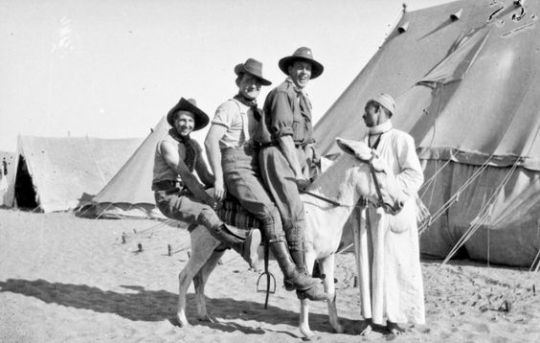
These aren��t values to be denigrated in any way. But they’re representative of most militaries in war. But the AIF did have a character unique to the Australian experience. Much is made of the fact that the AIF was an entirely volunteer organisation. From a population of fewer than five million more than 330,000 men and women served in its ranks between 1914 and 1918. Conscription was put to the people in referenda twice and twice it was defeated. People joined the AIF for the duration of the war. Few pursued careers in the military and although many had prior service it was in the militia, the part time army.
The ranks were filled from the cities, the suburbs and the bush by civilians. Even the officer corps was fleshed out by the professional and middle classes of lawyers, bankers, teachers and the like. These men saw themselves not as regular soldiers, but as civilians in uniform. They saw their role as merely a job, not a calling. They were there to fight the war, to defeat Germany, or the Ottomans, and to go home and back to the farm or the factory.
Australia had one of the strongest trade union and labour movement in the world in the early 20th century. It was the first country to vote a labour government into office and ideas of unionism, collective bargaining and fair work practices were strong in the minds of many working Australians. The language they used and the tactics they employed to deal with the discipline and hierarchy of the military demonstrates just how powerful these beliefs were. Soldiers routinely referred to their officers as their boss, refused orders they thought were unfair and protested their ill treatment by military authorities. They released soldiers imprisoned under field punishment, refused to salute officers and rejected the distinction between officers and other ranks imposed by the British army. They went into clubs, restaurants and hotels set aside of officers, believing strongly that they had the right to drink or eat where they chose.
They took strike action when they felt too much was asked of them, when they were refused rest or when they felt hard done by. When battalions were to be broken up due to lack of replacements in 1918, they mutinied. Refusing orders to disband, they ‘counted out’ senior officers sent to negotiate with them. Counting out consisted of soldiers on parade counting down from ten to one, before shouting a final obscenity at the officer concerned. It was a powerful form of insubordination that humiliated officers when it occurred.
In autumn 1918, after months without leave, Australian battalions took to strike action when they were ordered back into battle. After being promised a fortnight’s rest they were ordered back to the front for an offensive after just a few days. Unhappy troops - veterans, mostly - refused to move. The battalions were well understrength after months of fighting and the men felt they had been lied to, that they had sacrificed enough and that they were being overused. The soldiers took action in the way they knew how. They shot no officers and destroyed no property. For men used to fighting for their rights in the workplace it was natural that they would turn to collective action in trade union style.
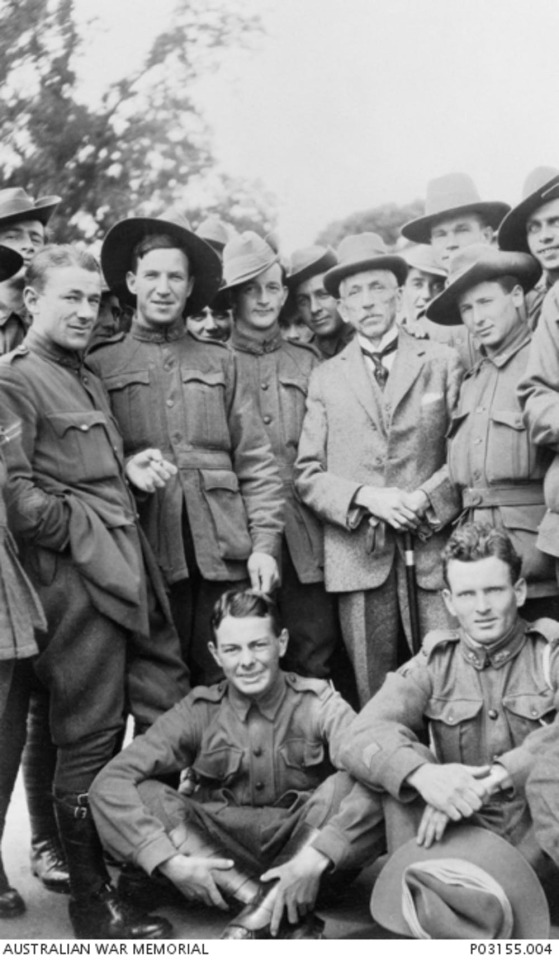
(Ex-union organiser and Labor prime minister Billy Hughes, seen here with some of his beloved men. Hughes was a favourite of the Australian troops who dubbed him ‘the Little Digger’)
And so it was in the 15th Brigade, under the command of Harold Elliot. Called Pompey by him men he was a courageous and fatherly figure, both liked and respected by the men under his command. It was his unique character that allowed Pompey to negotiate with his men, although rant and then plead were the words used by diarists, and convince them to follow his orders. Other officers, less well known and less admired by their men failed in similar efforts.
The civilian attitudes made them difficult soldiers to discipline. The standard punishment of the army, called ‘field punishment’ was particularly odious to Australians. Field punishment consisted of being bound to an object, a post or a wagon or gun carriage in the open for a number of hours. Due to the danger of artillery this punishment was not just humiliating but also potentially fatal. Diaries and letters from soldiers are full of stories about field punishment. They usually tell of Australian troops coming across British soldiers undergoing field punishment and freeing them, fighting with guards and military police.
There was a powerful resistance to the dehumanising and anti-individualising aspect of military discipline and authority. The AIF by and large saw themselves as civilians first and soldiers second. They understood the need for discipline and obedience and as more than one Australian noted “we have discipline where it matters”, on the battlefield. But the trappings of military culture and authority were repellent to the Australian working man. Strict obedience to hierarchy and the seemingly pointless requirements of military discipline were not only alien to Australians but went against their own values. Mutual respect was the key to the AIF as most of its officers discovered.
This side of the AIF, the strength of its civilian values is one that ought be remembered and celebrated in Anzac. The ideas from the labour and union movements, the fair go and mutual respect deserve a place alongside mateship and the larrikin as part of Anzac. The men who fought for the eight-hour work day and living wages were the same men who filled the ranks of the AIF and who fill Australian cemeteries in Europe and Turkey.
This is a part of the Anzac story that deserves a better place in our telling of it.
95 notes
·
View notes
Text
Rejection... (pt. 1)
After almost 2 years of abandoning not posting on this blog page... I realize i have not been my best. Maybe one of my gift is telling stories and empathizing with others.
The topic for this time is going to be one of the most painful step to be an adult... Rejection. You can see that we are going into parts. The reason why I am doing this is because.... I want to have different pov on this:
1) Rejecting somebody
2) Being rejected by someone else
3) Coping mechanism
When the word “Rejection” is mentioned, the first time comes to my mind is related romance. Of course, on top of that, there is also other major ones, like interviews, school applications.
However, there are some more settle ones too, like when other people don’t accept the way you are due to personality, hobbies, talent... There are of course some extreme that are related to one’s skin or hair colour, sexuality, religion, and disability... and so much more.
Some of the above are consider to be a crime, while some are not. There is a question in my mind: Why is that? How bad of a rejection needs to be in order to be even considered as a crime?
The world is unfair, but it wasn’t in human nature, just like many many other negative ideology we put on others. We don’t know what “Hate” or “Fair” is when we were born, we learned that from society... Society is always the one to blame, but then... who created society in the first place???
Going back to the topic of “Rejection”, some people find it easy to commit while some don’t. Me being the second.
I have seen psychology text, that the inability to reject some task could be a sign of a lack of self-esteem due to the thirst, or crave, to be accepted. The great example can be from a school situation, where all the “cool kids” go to football games, since one just don’t wanna miss out, or the inability to be a “cool kid” themselves, they would go to the game even they don’t like it. Fortunately, I, who always the black sheep of the herb, grew up of a mind set that I don’t need to be like them. And honestly, if you visit the blog about school, you’d see that I hate those people.
Another classic example is the bystander effect. The bystander effect is people decided to watch until one of the brave souls decided to stand up. This can be seen at accidents, where many people look rather than helping the injured. This can also be seen at (college) parties, when a intoxicated girl is witnessed being dragged by a guy to a room upstairs, and no one said anything. Of course, there are mandatory programs in college every year for students to participate about that, but... let’s be honest, how many people actually take it seriously and watch the whole thing without putting it in the background?
It can be difficult to reject other people sometimes... Whether it is an extra hour on a shift at work... Helping peers out on homework and test... Going to a party... Dating a toxic person... These are all social pressure, some even peer pressure, where we don’t want other people to be upset, disappointed, mad, or look down at us due to our decision to reject their request.
However, rejection can be a good thing for self. When you really don’t want to pick up an extra shift due to an upcoming exam at school, illness, or maybe just a day off after working 5-7 days nonstop... Rejection can be beneficial, Interpret it as a form of self respect and knowing yourself. There is nothing, absolutely nothing wrong, when you are rejecting something for the sake of your own good. It is a good thing! Why you might ask? Because it is a form of setting your personal boundaries. Therefore, rejection from time to time is an aid to know yourself better for personal development and a plus for building future relationships with those around you. Why would take a pill with poison if you know what’s inside?
(Continue on pt. 2)
Cheers,
Tiff.
PS: It is getting very cold where I am living, so stay warm with hot coco! Stay safe and protect your loved ones from coivd with a mask and prastice social distancing at all times!!
#rejection#pain#sadness#pressure#society#adulting#adulthood#selfgrowth#self love#boundaries#college#struggle#human nature#blog#self empowerment#self esteem#note to self#note to you#self respect
2 notes
·
View notes
Text
So! It’s that time of year again, magik is in the air, and monsters are prowling the streets. Time I say we share a good old-fashioned halloween folk story!
Before I begin, let me first clarify a few things. Firstly, this is an old story; the fable has roots in Ireland, and has been around at least several hundred years. As such, several different versions of the story have cropped up, so if you’ve heard a different version of the story, do not fret. For this telling, I’ve selected the iteration of the story which I personally feel is most faithful to the characters and the natural flow of the story itself. Secondly, this is a story with deep cultural and religious ties. Being an Irish folktale, of course, there’s going to be a heavy mix of Christian/Catholic themes alongside more abstract pagan beliefs. I myself say you’re more than welcome to believe whatever you wish, but for those of you who get offended easily by mentions of religion, you may wish to forgoe reading this tale.
That being said, let’s begin this story about a terrifying being who stalks the night every year! Though you probably know him already, in one form or another~...
THE TALE OF STINGY JACK

So! Our story begins a long, long time ago, in a small Irish town - more specifically, the pub of the old Irish town. Sitting in the pub, drinking to his heart’s content, was a man known to the local residents as “Stingy Jack”. Stingy Jack was known around town for many reasons; as the nickname suggests, he was rather cheap and selfish, and was very much known for his avarice and... generally being an all-around jerk to people. However, he was also known for being a rather shrewd and tricky individual; he could always find cash around when he needed it, or ‘convince’ some poor stranger to part with some change.
Another thing Jack was known for was being the town drunkard, and presently he was living up to that reputation. On this particular day, though, Jack had run into a bit of a problem. He had just finished his mug, and was going through his pockets to pay for another, only to find he did not have enough! He cursed to himself, and idlely grumbled, “Damn... I’d sell my soul for one more beer.”
So just imagine Jack’s surprise, when who should happen to hear this plea... but the Devil himself!
The Devil pops into the pub, and takes a seat next to the rather surprised Jack. “So I hear you’ll sell your soul for one more drink, eh?”, the Devil asked, smiling with that devilish grin of his. “I think I can help with that! If you agree to give me your soul, I’ll give you enough change for a final drink at the bar. What do ya say, Jack?” Now Jack, as we covered, was many things - a cheater, greedy, and selfish among them. But one thing he was most definitely not was a fool; he recognized at once that making a deal with the Devil would end up with his desires being twisted or convoluted. But rather than doing what most people would do and decline, Jack decided to try his luck at out-swindling the swindler. “I got a better idea,” Jack replied with a sly grin. “If you turn yourself into a coin, I’ll spend you for my last drink for the night. Then you can change back to normal, and cheat the bartender out of his payment! What do ya say?”
The Devil chuckled aloud. “I like the way you think!”, he confided, and with that, he promptly turned into a gold coin to be spent. However, Jack instead took the devil coin, placed it inside his pocket, and held it against a crucifix he had in his pocket! Unable to shield himself from the sacred icon, the Devil began to shriek and shout. “Please! Stop! It burns!”, the coin shrieked in agony. “I’ll do anything you want, just take it away and set me free!” “Ok then,” Jack replied with a victorious smirk, “I’ll let you go if you promise that I won’t go to Hell when I die!” “Sure, fine!”, the devil cried in pain. “Just let me go!” Jack smiled, and tossed the coin away. The Devil disappeared, and Jack had got his wish.
For the rest of his mortal life, Stingy Jack indulged himself in the most deplorable of activities. He murdered, he stole, he drank, he performed just about every sin and crime in the book. After all, with no worries about where he would end up, he had nothing to fear anymore!
When Stingy Jack’s death finally came to pass, there were more than a few among the townsfolk who were grateful to be rid of his debauchery. Jack’s soul left his body with an air of smug joy, and followed the path to heaven, ready to indulge himself in his afterlife. However, as he approached, the gates remained locked. Confused, he approached the gatekeepers and asked why he couldn’t go to heaven.
“Your soul is too wicked,” the gatekeepers said. “We cannot accept you here.” “I can’t go to Hell, though,” Jack countered confusedly. “Doesn’t that mean I go to Heaven?” Again, the gatekeepers refused him entry due to his wicked soul.

Jack tried again and again to argue his point, but each time was steadfastly refused. Stunned and confused, Jack reluctantly turned away from heaven and began to follow the path. Without a place to rest, his soul wandered the dark, mysterious realm between Heaven and Hell... the Other Side. For months he wandered, trying to process the gatekeeper’s refusal while avoiding the unearthly shapes and ominous sounds hiding all around him. Finally, though, it dawned on him... the afterlife wasn’t all or nothing, as he had believed. Heaven was only a place where the goodhearted could reside; because he had lived his life with selfish and greedy intent, he could never truly gain the enlightenment and peace that realm offered.
Somewhat defeated, Stingy Jack trudged back along the path, down to the only place he had left... the very place he had declined access to...
When he finally arrived at the gates to hell, a familiar face greeted him, his smile full of savage and cathartic schadenfreude. “Well, well, well! Look who comes crawling back to me!”, the Devil gloated with a cackle. Jack knelt down. “Please,” he begged, “I understand now, and I’m sorry. I didn’t know what I was getting myself into. I just... I need a place to rest. I can’t stay out here, so please let me take back my wish?”
The Devil frowned in thought; while he wasn’t particularly eager to have someone like Jack in his domain - especially after the horrible backstab he’d received -, it seemed somewhat unfair to let the swindler go empty-handed...
With a vile smirk, the Devil grabbed a burning hot coal from the ground at his feet. “Here, this should help light your way!”, he called out as he tossed it over the gate. “Careful, its hot!”
As Jack caught the burning coal, a couple things happened. Firstly, his hand was severely burned, as the coal seared his skin, and he screamed. Secondly, the hellish energies and magik from the coal began to mutate and warp his body. His body twisted and stretched, as Jack was transformed into a freakish entity, daemonic energy radiating from his once mortal body.
With the Devil’s laughter ringing in his ears, Stingy Jack slunk back into the darkness, clutching the coal. Rejected by heaven and hell, he spent what felt like an eternity wandering the dark, twisting, foreboding lands of the Other Side. All the while, he held the searing hellfire coal in his hands - too painful to squeeze it tight, but too afraid of losing it forever to let go. After all, it was his only source of light and warmth, in the darkness. And it likely would’ve remained that way, but then Jack gained a small reprieve.
Whether it be through sheer determination or from some bizarre supernatural strength granted by his transformation, Stingy Jack managed to hold onto that burning coal until a very special day came. That day, of course, was All Hallow’s Eve - Halloween. A day when the mortal world and the Other one start to grow closer together, and the monsters and strange beings from the Other Side start to slip into our world to explore while they can. Jack, too, managed to cross over, and made it back to his hometown under cover of night.
But he didn’t come to relive the old days, or to apologize to the townsfolk he had wronged; Jack only had a short amount of time before he would be forced to return to the darkness. He only had one goal: finding something to carry the coal in, so he wouldn't be pained any longer.
So he stumbled through the night, still clutching the eternally-burning coal in his hand. After several hours of lurking through the woods, he found his way into a farm, where he found a collection of freshly-harvested gourds. He picked a small one, carved a hole in the front and top, hollowed it out, and tied it up with some rope to carry it. Then, he dropped the coal in, and carried it like a lantern, managing to complete all this before slipping back into the darkness.
And this is how he got his name, “Jack of the Lantern”.

The ending of this story differs from telling to telling. Some like to think that old Stingy Jack has taken this new opportunity to redeem himself, and has taken up the role of a gatekeeper himself, keeping the monsters from the Other side from causing trouble and guiding them back at the end of every Halloween. Others like to think that Jack has only became even more vile and cruel after his transformation, and now lives for the pure enjoyment of the suffering of others, be it mortal or monster. Unable to sway from his sinful and sadistic past, and now with the powers of a daemon, he has truly become the most monstrous of monsters.
And then there’s those - myself included - who like to take a more benign middle stance: having made peace with his past mistakes, Jack is nowadays just an incurable prankster, living to cause a good scare once in a while, making him not much different than the monsters he walks amongst.
Whatever you believe, the end result is the same. Jack has earned a reputation among the monsters of the Other Side as a being whom is best not to provoke. And this reputation is the reason we carve Jack-O-Lanterns every Halloween: to scare away monsters by tricking them into thinking that Stingy Jack’s lurking around. When a monster sees the carved pumpkin, glowing with the light of a flame, they take notice and give it space.
So keep yourselves safe this Halloween, friends. And if you happen to see a Jack-O-Lantern on its own in the woods... ...run.
#Halloween#scary story#atlas the worldbuilder#Story Time#jack o lantern#Stingy Jack#folklore#storytelling
38 notes
·
View notes
Text
Manifestation Magic Learn This, and Your Life Will Change Forever!
I 'd like you to visualize a yard. In this yard, the soil is constantly abundant with nutrients as well as what you plant, it will expand.
There is rainfall and also sun so you do not have to stress about anything.
You can grow anything. There are no restrictions. You can plant roses or you can grow toxin ivy. You can plant tomatoes or you can grow nightshade, a dangerous poison. What you place
in, as a seed, will ultimately become something a lot bigger. This garden is your mind as well as the seeds you can plant are your thoughts. Your mind is a fertile location where the thoughts you plant, will grow and make up for what your life is. Or as the old passage from the Bible goes, from guide of proverbs, phase 23, verse 7:"As a male thinketh in his heart, so is he, ".< p design =" box-sizing: border-box; margin-right: 0px; margin-bottom: 0px; margin-left: 0px; ">
Your ideas, your sentences, manifest the bordering truth. Manifestation magic.
Your life, excellent or negative, is nothing greater than a representation of the thoughts you've grown in your mind and also nourished. These ideas came to be habits. Behaviors came to be results.< p style="box-sizing: border-box; margin-right: 0px; margin-bottom: 0px; margin-left: 0px;"> You are where you are right currently due to the fact that deep down in your heart, this is where you wanted to be, no matter exactly how unfortunate or unfair this might seem. This principle is just one of the oldest spiritual regulations out there. It's also among the finest known. You may know it under a different term. This is"you become what you
consider".
As well as you can find this in all of globe's religions. Some variant of this exists in Hinduism, in Christianity as well as in essentially every various other significant religion. It's found in all belief systems, as the one utilized by the Chinese. It's as much of a doctrine as gravity. Long prior to books existed, sensible people comprehended that our ideas materialize our reality.
It functions on two levels.
First, your ideas are connected to deep space on a quantum degree
. We manifest what we actually think.
Allow me make this clear though. You do not materialize what you believe you believe.
You manifest what's in your heart. If
you believe you deserve distress and pain, then regardless of what you state, this you'll get. A large amount of people think they have favorable thoughts when their inner guide is constantly negative and also damaging.
That voice will always win. Maybe this is why LoA fails for numerous individuals- they're trying to grow trees of success and success while growing seeds of uncertainty as well as pain and suffering.
It does not function in this manner. You obtain what remains in your heart. The world will manifest it. However what remains in your heart is the reality and we may not always understand of this fact. Life does not provide you what you meant. Life gives you what you ask. And also while lots of people mean for riches as well as delight and also health, their thoughts are of hardship and also sadness and also misery. Since this is what they're planting, this is what the cosmos appears.
2nd, your thoughts result in beliefs. Your ideas result in activities.
Your actions result in end results. Your end results brings about your destiny.
The ideas you plant in your mind will certainly identify just how you act, on a level that's so subtle that you can not also regard it. Who you are, is the repercussion of the ideas you've adopted. It's tough to understand this.
It gets on the same degree of breathing. You realize your breath just if you focus. You recognize your actions and also where it originates from just if you evaluate it. But every little thing you are originates from the ideas you've once grown in your mind as well as then allow them become a component of you.
So when you plant positive ideas, you obtain favorable results. When you plant love as well as happiness, your behavior will mirror love as well as it will certainly produce joy for yourself and also for others. When you plant ideas of prosperity and also wealth, your actions will develop wealth and also prosperity in the globe.
Consider this like the captain of an airplane.
A plane is substantial, lugs hundreds of guests and also weighs 10s of heaps. Yet, you will find just a couple of pilots in the cabin, controlling this big device. So is with your life. Also if your actions is definitely intricate, there are simply a few ideas that control every one of
it and also if you change those thoughts, whatever will alter for you too.
The thoughts you plant in it will certainly both show up truth as
in developing reality itself and also form your habits to develop the results you desire.
Both are essential. This world is a 50-50 place. The cosmos can manifest the opportunities you need at this minute yet you should act to take advantage. If good luck knocks at your door, you still require to unlock.
It's like in this old joke. An angler is caught up in a storm. His watercraft is sinking. Hopeless, he prays to God. "God, please save me, I'll be excellent, I'll repent, just save me " A few minutes later on, a boat appears."Hello there, do you need any assistance? ", the do-gooder asks him.
"No, no, God will conserve me", the fisherman solutions. Perplexed, the hero leaves. Ten mins later, the same things happen. An additional boat appears. They supply to help him. The fisherman rejects stating that God will assist him. At some point, the boat sinks, he passes away and goes to heaven. There, face to face with God, he asks ... "God, why did you left me to die? I hoped to you as well as I assured I'll repent for my wrongs".
God checks out him and claims "What are you discussing? I've sent you two boats". This is a joke, but this is exactly how life works also.
We manifest opportunities yet you have to take advantage of these chances. If you are a property agent and you intend to shut a big offer, your ideas will materialize this possibility. The universe will line up individuals, locations and also conditions for this to happen.
Yet these people, locations as well as conditions won't come to you in your living room. You need to still act and also do something. Or possibly you want to locate the love of your life.
Thoughts of love as well as recognition will manifest your perfect partner but your partner will not knock at the door and also ask you for a date. Deep space resembles a tree that supplies you the fruits you need, in boundless abundance, however you still should get hold of those fruits from the tree.
And also it all starts with your ideas, with your beliefs. Make a commitment currently to fill your mind with favorable thoughts. Make a commitment to assume just ideas of love as well as happiness and also wealth.
At first, it will be difficult. If you're used to plant only poisonous substance in your mind, it will certainly take a while until you take it all out. Once you do, you'll see something extraordinary happening. You'll see just how you'll stroll right into the best circumstances. You'll locate on your own in the ideal places, at the correct time, to get what you want.
Exactly how can I aid you do this?
Manifestation Magic consists of covert NLP commands which work as seeds to plant in your subconscious mind. NLP is an effective modern technology built around the very best schools of psychotherapy as well as hypnosis. It allows you to "program" your subconscious mind - planting seeds right into the productive ground of your mind as well as heart.
This implies you can listen to these tracks prior to going to rest and also change what you think, placing no initiative in any way.
Manifestation Magic constantly includes the best of brainwave entrainment, which educates the brain to operate at a higher frequency and also is constructed around the Solfeggio scales, tones that will certainly heal you and also assist you materialize miracles in your life.
Click below to uncover exactly how Manifestation Magic can assist you grow far better ideas into your mind and materialize the life you are entitled to.
>>Click Here To Manifest Magic Into Your Life<<
1 note
·
View note
Note
In the Hereafter, will Allah call us to account for our sins for which we consistently beg Allah for forgiveness? It is stated in the Quran that one will be called to account for even the slightest evil deed; so will we be questioned again on the Day of Judgment about our sins for which we have repented?
One will be called to account if s/he does not repent or does not fulfill the requirements of the repentance. If the repentance is accepted, there will be no accounting again.
It is doubtless that one must repent as soon as he has committed a sin, because it is obvious that rebelling against Allah by disobeying His orders and prohibitions, no matter to what extent, will erode one’s faith. Therefore, if one remembers Allah right away by repenting, he will eventually happen to turn to his faith and make effort to strengthen his faith. As a matter of fact; Allah states: “And those who, having done something to be ashamed of, or wronged their own souls, earnestly bring God to mind, and ask for forgiveness for their sins, - and who can forgive sins except God?- and are never obstinate in persisting knowingly in (the wrong) they have done.” (Aal-i Imran, 3:135) and “God accepts the repentance of those who do evil in ignorance and repent soon afterwards; to them will God turn in mercy: For God is full of knowledge and wisdom.” (an-Nisa, 4:17).
Apparently, we should remember our Lord, turn to Him, seek refuge in Him so that he will forgive our sins, and we should be ashamed of evil deeds we have done and fear Him as soon as we have done something which will lead to increase of evil or as soon as we have committed sins. Moreover, we must not insist on doing the same things we have done. If we do so, our sins will be forgiven and we will find ease and peace in our souls; and we will happen to refrain from doing any other evil deeds with the help of this attitude. Our consciousness and strong faith will prevent us from disobeying and committing sins again and thus, we will not need to repent again. However, we will be a thankful servant of Allah to reach a higher position in the eyes of Allah and seek refuge in Him. Benefits and wisdom in the obligation of repentance right after the commitment of sins are obvious as it is stated below:
First of all, a human being, who has forgotten Allah due to the fact that he has indulged in sins, happens to remember Allah by repenting and strengthens his belief in Allah by deeming it an obligatory duty to obey His orders and refrain from what He has forbidden. Gaining this consciousness, he starts to fulfill the requirements of this religion. Secondly, this human being looks at his sins and thinking, “I am a bad servant of Allah”, he refrains from becoming desperate and committing sins from then on. With the new hope he has found and the new trust he has gained, he approaches more to his Lord and makes great efforts to fulfill His orders and to refrain from what He has forbidden. This is because human beings pursue their lives with the help of their hopes and dreams about future. Since a person, who has lost his/her hopes and dreams, has difficulties in pursuing his life because of problems and difficulties he encounters, he either causes harm to other people or commits suicide. It is known by everybody that prominent factors that make people hold on to life are hope and faith. A person who repents finds the hope and faith he has lost and holds on to life again. He either endures or manages to be happy when he encounters bitter ways of the world and he tries to be helpful to other people in all matters. As a matter of fact, Allah gives the good news as follows: “For such the reward is forgiveness from their Lord, and Gardens with rivers flowing underneath, an eternal dwelling: How excellent a recompense for those who work (and strive)!” (Aal-i Imran, 3:136).
It is apparent that our Lord gives us the good news that He will accept the repentances and will reward the ones who repent, and if they repent, they will be sure and safe in their future and will gain their hopes they have lost. What great happiness it is for us, which makes us hold on to life, to earn such a reward from Allah.
In this sense, repentance plays an important role in human life. It is repentance which makes one hold on to life, which gives one hope and desire for life, which directs one to Allah and strengthens one’s belief and faith. It is possible only through repentance for one to live happily and safely together with people who fear Allah and love His Messenger and who live as the religion requires, as an honest person who respects everyone’s rights, who contents himself with what he has got, who compensates for people to whom he has been unfair and earns their friendship.
Our Lord says, about the ones whose repentances are not accepted: “Of no effect is the repentance of those who continue to do evil, until Death faces one of them, and he says, "Now have I repented indeed;" nor of those who die rejecting Faith: for them have We prepared a punishment most grievous.” (an-Nisa, 4:18)
As it can be comprehended from the verse above, there is no difference between someone who increases his sins by continuing to commit evil and who says, “Now I have repented” when he faces death, and someone who is a denier of truth (i.e. infidel) and dies before repenting and believing. Their repentances are not accepted by Allah. Both of them will face Allah’s violent wrath; on the other hand, the degree of the pain they will suffer may differ from one another.
The reason why an infidel and a person who delays his repentance until he faces death are deemed equal is, in our opinion, as follows: Facing death is the first stage of afterlife. In this stage, that person will soon pass away to afterlife and he will have no opportunity and strength to do evil or good. There are many verses which tell about it. For instance, the verse “when death comes to one of them, he says: ‘O my Lord! Send me back (to life), in order that I may work righteousness in the things I neglected.’ By no means! It is but a word he says.” (al-Mu’minun, 23:99-100) and the verses al-Mu’min 40:105, Yunus 10:90-91 and Munafiqun 63:10 have that meaning. There are also some hadiths on the issue. For instance, Abu Ayyub narrates from the Prophet: “Allah accepts repentance as long as he does not start choking (at the time of death)”.
Allah the Supreme declares that He will not accept the repentance in that situation but that He will accept repentance apart from that situation and state. Therefore, it is not right to delay repentance at all. It will be advantageous for people to repent right after having done an evil as stated in this verse: “God accepts the repentance of those who do evil in ignorance and repent soon afterwards; to them will God turn in mercy: For God is full of knowledge and wisdom.” (an-Nisa, 4:17). We do not know that when and where death will come to us. For this reason, it is advantageous for people to hurry to repent.
#Allah#god#islam#quran#muslim#revert#convert#revert islam#convert islam#reverthelp#revert help#revert help team#help#islam help#converthelp#prayer#salah#muslimah#reminder#pray#dua#hijab#religion#mohammad#new muslim#new convert#new revert#how to convert to islam#convert to islam#welcome to islam
6 notes
·
View notes
Text
Empedoclean Pluralism
Most of the time it is unfair to see someone’s life work as being entirely reactionary to their predecessor, but the pluralists are uniquely reactionary. The entirety of their belief system is a response to the Eleatic rejection of change and the world of flux as portrayed by Heraclitus. Until then, the dominant world view in Greek philosophical circles was that there was a substance called the arche that differentiates into everything you can see. The Ionians disagreed on what this substance was or how it became everything else, but it is clear that Parmenides vehemently disagreed with him.
The exact views of Parmenides are unknown and the scholarship behind his work is surprisingly contested. There are several views on what he actually advocated for, but his central criticism of change is not one of those contentious points in Parmenidean scholarship. Put simply, Being is and consequently Being cannot not be. The idea that if something exists that it must continue existing is the central assumption of Parmenides. It leads to his rejection of change because if something were to change then its previous form would have to cease to exist and the new form would have to come into being, which is impossible. The traditional reading of Parmenides then argues that he thought the world was an unchanging sphere, an eternal Being that would never cease to be or ever change. That everything exists in a single undying moment. The short story is that people agreed with Parmenides that things don’t change, in the way that the Milesians advocated for change, and rejected the idea of an arche, thus rejecting monism, but they were not keen on thinking that we exist in a homogenous blob and that everything we know is a lie. This partial acceptance of Eleatic philosophy is where the pluralists come onto the intellectual scene. This week we are going to be highlighting one of them, Empedocles.
He is a lot like Pythagoras in the sense that he was a man that is now shrouded in legend and has a lot of myth and ridicule tied to him. Most famously, there is an apocryphal story that he jumped into Mt. Etna in order to destroy his body so people would think he was whisked off to heaven and became a god. The story also goes that he left his slipper on the mountain which exposed his rouse. This legend is almost universally rejected as a malicious rumor spread by the thinker’s opponents. But Empedocles would certainly have liked to be thought of as a god. His supporters sincerely advocated that he was able to raise the dead and perform miracles. He allegedly was expelled from the Pythagorean cult and was banished from his home in Sicily. The likely truth was that he was heavily influenced by the Orphic mystery or Pythagoreanism, was politically active in supporting democracy, and that he left Sicily to never return. It is common in the secondary sources to mention that he was banished by his political rivals (those who opposed to democracy). His writing style is similar to Parmenides in that he wrote in hexameter and is often cited as a poet. However, unlike Parmenides his work is divided into two starkly different poems instead of a poem with different sections and he did not invoke a goddess. There is also no reason to think as much about Empedocles’s choice of writing style as you would Parmenides, because Empedocles did not claim divine revelation. Empedocles was a poet and wrote in response to Parmenides which could sufficiently explains his choice of using hexameter.
Empedocles wrote two poems that have only survived in fragments, and we likely have less than a quarter of the original work. However, from these fragments and other ancient sources addressing his work, we have an idea about what his views were. The commentaries written in the 20th century, such as A History of Western Philosophy by Bertrand Russell, talk far more about his scientific poem titled On Nature. As you may have noticed this is the same title that Parmenides titled his work. Empedocles’s On Nature according to Russell is clearly a scientific work where he outlines his metaphysics and view which we now know as pluralism. The second poem written by Empedocles was religious in nature and is titled as Purifications, which is an obvious reference to the Orphic mystery religion. Russell does not discuss the second poem much but does state that Empedocles’s religious views were similar to the views of the Pythagorean school. From reading various commentaries it is apparent that Empedocles’s scientific poem was more influential and more widely discussed. In it the pluralist view of the world is laid out.
Pluralism is a lot like monism in that both belief systems advocate for the existence of substances that are eternal and original. In the Milesian school, all that there is springs from the arche through various processes of change. In Empedocles’s pluralism there are four original and eternal substances called roots. In addition to having more than one original substance, Empedocles believed that these substances did not change. The idea that the original substance does not change, cannot change, is due to influence of Parmenidean monism on the ancient world. It is unclear if Empedocles was extending the ideas of Parmenides which is what a predicational monist reading would indicate or if Empedocles rejected the ideas of Parmenides because their final derivations were unpalpable, such as the notion motion is impossible, which would be in line with a strict monist reading.
Empedocles had an explanation for how a small number of original substances called roots could result in the perceived diversity of matter that is evident by sense perception. He advocated that the roots were earth, air, fire, and water and that these substances would either mix or separate to form everything else. This belief was likely another response to Parmenides in that it advocates the world is as it is perceived rather than it being contrary to what it seems. The use of a process to explain the diverse reality we live in is probably influenced by the Milesian school, which in several instances argued that the world is formed by processes. It could be said that advocating for multiple roots was just a way to work around the Parmenidean challenge to change so that ancient thinkers could justify a belief in a world that seems to change. It is important to emphasize that Empedocles would say that he does not believe that things change, he would say that he thinks everything is a combination of eternal unchanging substances that are either separating or mixing.
In Empedoclean pluralism, the separating and mixing process has a mystical element to it. He refers to the process as Love and Strife or untranslated as Philotes and Neikos. Philotes and Neikos are the Romanized names of personified deities in the Greek religion. They are not only forces that are as eternal as the roots themselves, but they are literal Beings. Neikos or the Niekea represent strife or conflict that causes people to move away from each other but in this system of viewing the world, it represents the force that causes the roots to separate from each other and move to their purer form. Philotes in mythology is the living embodiment of love and friendship, here Philotes is Love the force that causes the roots to mix and become intertwined.
Empedocles viewed that reality was a sphere, no doubt another reference to the Eleatic school, and that this sphere was in a constant cycle of being dominated by either Love or Strife. During the cycle, one of the forces would almost completely occupy the sphere while the other force was on the outside. He advocated that humanity was likely born during a time when the sphere was full of Love, and the roots were becoming more intertwined. The movement of the forces, like the roots, is an eternal and unending process. It could be said that Empedocles was at least in some sense advocating a teleology, the idea that history has a distinct direction or pattern, and in some ways that opinion would be correct. However none of the primary or secondary sources I have read point this out, so it would be more conservative to assume that the idea of a teleology came later and could have been influenced by the Empedoclean cycle of love and strife.
Thank you for reading and please feel free to comment your responses or suggestions!
Suggested readings
Early Greek Philosophy – John Burnet
Greek Philosophy: Thales to Plato – John Burnet
The History of Western Philosophy – Bertrand Russel
History of Philosophy – William Turner
A History of Philosophy, volume 1 – Frederick Copleston
2 notes
·
View notes
Text
Whiteness Equates To Beauty in Contemporary Asia
Growing up I often heard the phrase, “I wish I was more tan”, but I was surprised to learn that the opposite is said today in certain Asian countries where numerous non-white women are longing for a complexion that is whiter than their natural skin colour. This has commenced to the increased usage of skin whitening treatments that are advertised as beautifying. The beauty standard of whiteness that is popular in modern Asian society draws back to the institutional legacies of colonization and imperial feminism, as well as the modern advertisements used to further establish racial hierarchies. First, I will discuss the racist doctrines colonists’ implicated on Asian people and the racial binaries that were reinforced. Next, I will explain the consequences of imperial feminism that was used to assert racial superiority. Lastly, I will examine the advertisements that continue the rhetoric of relating whiteness with power and beauty.
Colonialism has conceived many world issues and detached colonized peoples from many aspects of their culture including their languages, philosophies, religions, and homelands. This colonization primarily conducted by European domination has influenced considerable aspects of everyday life. Colonialism further employed racism and nationalism in their policies and laws which further fortified the idea of distinctive binaries between white and coloured people. Ann Laura Stoler speaks on this and the colonial exclusionary and discriminatory practices inflicted on Southeast Asia, in particular, to discriminate against mixed-race offsprings and sexual relations. In French Indochina and Netherlands’ Indies, the volume of the metis population was seen to be a “dangerous source of subversion” and a threat to white prestigiousness (Stoler 515). In these colonies, laws were created to prevent mixed-raced relationships and children by rejecting metis as a distinct legal category (516). These bigoted remarks instilled the idea of inferior and superior races that can translate defectively in the subconscious of colonized people.
Imperialist feminists advanced the binaries of races by asserting “their transnational moral superiority” by prevailing themselves as barriers of interracial relations while subsequently maintaining an image of being bearers of racialized “heteronormative traditions and feminine respectability” (Coloma 245). By utilizing the education system, white educators engraved Victorian femininity into the minds of young Filipina girls by devising curriculums that teach “sewing, embroidery and housekeeping” (257). These curriculums created the notion of being a respectable female which is transparent in modern Asia as the new Asian woman is often encouraged to uphold Victorian feminity that was taught to younger generations. Imperial feminists are inturn seen as heroines and as privileged due to the superiority they assert. This produces this longing of desire to share those privileges which I argue appears in many forms such as complying with victorian feminist ideals or the act of making oneself appear more white. These practices are due to the forces that historically produced European hegemony and racial hierarchies.
Skin-whitening is a multibillion-dollar industry, but it is problematic as it associates pale skin with privilege, comfortability, higher socioeconomic status, and often seen as contributing to matrimonial desires. Currently, in the Philippines, there are aisles dedicated to whitening products (as cited in Tai & Sukumaran 2019). These products continue to advertise a belief that achieving white skin leads to a purposeful life as well as “acceptance, fame, men, money, or class mobility” (as cited in Tai & Sukumaran 2019). In an advertisement for Ponds, a product called “White Beauty” was marketed towards particularly Indian women as it utilized a popular Bollywood actress, Priyanka Chopra.
vimeo
In this advertisement, the lady is seen to be going through a breakup and amid her heartbreak, she stumbles across Ponds White Beauty cream, once she uses the product her ex-boyfriend begins to fall in love with her due to her new white beauty. This sends a message that you will find love if you are “white”.
The next advertisement is for a Filipino company called GlutaMax, this advertisement translates to “Just because she’s fair-skinned, she was given a seat on the bus? Isn’t that unfair?” and continues by sharing a statistic that 3 in 5 Filipinos believe fairer skinned people receive better treatment than others. I find it disturbing that the bottom right corner says “your fair advantage” because instead of addressing the problems with the disproportionate treatment, it advertises that the solution to gaining an advantage is buying their product and becoming fair.

These companies profit off of the beauty standards that are largely rooted in colonialism and imperialism and often are comprised of very harmful chemicals that pose serious medical issues. They also pity and shame natural dark skin and praise fairness.
These representations of the beauty standards of modern Asian women relate to my autobiography as an Iranian. Although the issue of skin whitening is not as prevalent, the rise in nose jobs are. It has become a running joke that Iranian women get plastic surgery to look white as they change their face and dye their hair blonde. These beauty ideals come from social media and the rise in advertisements for plastic surgery as well as social pressures to “fix” one's nose. I can not remember a time where I wasn’t insecure about my nose but as I grew older, and noticed my family members and Iranian friends got nose jobs not to make their noses smaller, but to make their noses look like ones from popular white women. Knowing this, it made me recognize that there is nothing wrong with my nose but with the society that tells us that our noses aren’t beautiful when in actuality they simply just do not look like those of white people.
Colonialization and imperialism shape the beauty ideals of the modern Asian women, due to the historical doctrines, policies, and laws used to discriminate against Asian people which created a ripple effect of setting distinctions between races and inforcing supremacy. The uses of imperialist education also continued down generations causing the ideals many modern Asian women have such as upholding Victorian femininity. Lastly, these ideals of superioress and inferiorness between races are still being represented to Asians in the forms of advertisements that hope to profit off of beauty standards that equate whiteness with beauty and transcendence.
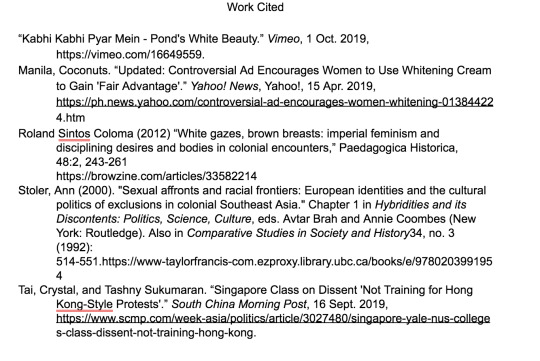
4 notes
·
View notes
Text
# Who is / isn't Jew in biblical term? (Ver.8)
‘Jew' in English language is today used very widely without knowing its true meaning. So, many people, even Jews don't understand properly its origin. English bibles translated 'Yehudi (species of Yehud)' as "Jew". That's the problem.
Therefore, I have to explain you what 'Yehudi' is really in Biblical sense, so that you should know the difference among 'Yehudi' & Jew & Children of Israel.
<'Yehudi'? Or People of Judah? Not Children of Israel?>
The point is :
"Why nobody called people of Judah as 'Yehudim' until the time of Babylonian invasion?"
... If you believe that 'Yehudi' is purely Judah's descendant, it would be strange. Many people & Jews assume it's same. But in reality, not so. Such an example exists in the Bible.
For instance, Benjamin (son of Jacob) & "Ben Yamin" are not same. If you read the episode of Shimei in 2 Samuel 16:5-13 & 19:16-23, you'll know how to be used the phrase "Ben Yamin". It never literally means biological son of Benjamin. It's a title of brave for justice. Same is 'Yehudi' & Sons of Judah. It is distinct how & when to use 'Yehudim' or 'Bani / 'Am / Enashim / Ish Yehudah'.
"Hanani, one of my brothers, been arrived with 'mankind' from Judah (Hbr: Enashim mi Yehudah), and I (Nehemiah) was continuously questioning them about the remnant of Yehudim (Hbr: Ha Yehudim) who had survived out of the exile and about Jerusalem." [Nehemiah 1:2 (my translation from Hebrew)]
... Interestingly, people from Judah is described 'Enosh (nuanced "weak mortal Human")' against 'Ha Yehudim" the super Human.
In the Old Testament (OT; Tanakh), people of Judah is always written 'Bani (sons) / 'Am (people) / Ish (man) Yehudah' as same as "Children of Israel (Bani Israel)". 'Enashim' is rarely used due to its nuance. So Nehemiah 1:2 looks strange for frequent Hebrew Bible readers. Not normal case. It's not that people of Judah asked people of Judah.
So it's clear that Yehudites are not people of Judah.
If you believe it's same, I'd say why people from Judah didn't say in Nehemiah 1:3 that "we" are suffering when Nehemiah had asked them about "Ha Yehudim". It indicates that "Ha Yehudim" are at least not direct category of Judah or another specific group there, right?
Look moreover at spellings.
1, Yehudi : Y + H + W + D + Y (Yehud + Y; Species of Yehud)
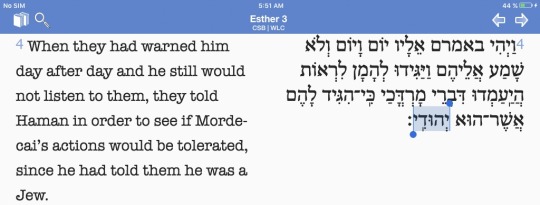
2, Yehudah (Judah) : Y + H + W + D + H (actually, Jehovah including D: Dedication, Love, something Special, chosen)

... The critical difference is that "Yehudi" doesn't have Jehovah, but Judah has it. Not only spellings. The tribe of Esau is made by Judith (Yehudith) the Canaanite while Judah left his sinful brothers who cruelly wanted to kill Joseph and tried to build family with Canaanite women but failed under Jehovah's interfering and subsequently made kids with Tamar (Genesis 38) who would later become the royal line for David.
I quoted above the name of Judith from Genesis 37:26. She is the key role of this issue. Here I put a critical verse for it.
<True language for the Holy Text>

... 2 King 18 narratives that Hezekiah's 3 agents asked Rabshakeh not to speak "Yehudith" but Aramaic. That's strange. CSB translated it "Hebrew", but 'Ha 'Avri' never occur in this verse. It's "Yehudith".
Rabshakeh is a royal spokesman from King of Assyria. He should know Aramaic but not Hebrew, IF YOU BELIEVE THAT HEBREW IS THE ORIGINAL LANGUAGE OF JEWS. So now raises the question.
Why Assyrian originated person can speak "Jew's language"?
If you believe that "Judaean / Hebrew" is the only one language for so-called Jewish or Israelites, this belief would be wrong. Rabshakeh exactly can speak this Judaean (Read 2 King 18:26-28). So let's see the spelling of Judith the wife of Esau.
... Surprising? Yes, it's completely same! Read also Nehemiah 13:23-24.
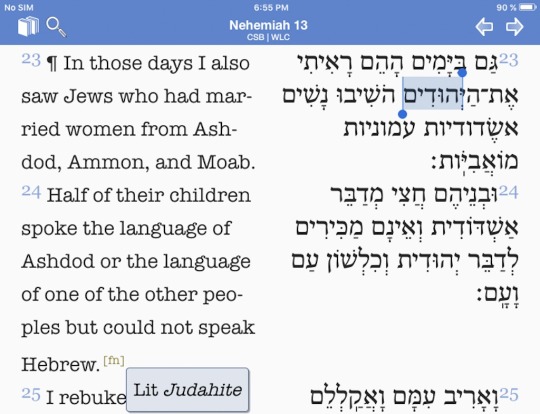
... See that Yehudim's language is Judith! This translation "Hebrew" is totally wrong.
So what is language of Judith? It's the Canaanite language.
Historically, Canaanites are Phoenician whose activity place was through Mediterranean to Aegean Seas (Check also Numbers 13:29, Deuteronomy 1:7, Joshua 5:1). And Paleo-"Hebrew" is the oldest written language for the Jewish Bible (Tanakh). What is Paleo-Hebrew? It's a variant of Phoenician! So you obtained the answer now.
"Yehudith" = Judith's = Canaanite = Phoenician = Paleo-"Hebrew" = Jew's language
So it's normal that Assyrian tribe may speak Phoenician.
Then, these factors strongly prove that the author(s) of Tanakh should be the Canaanite / Phoenician tribe. Therefore, "original Hebrew language" never existed. Seeing Abraham & Isaac's stance "Never take Canaanites wives", it is impossible that Jehovah's people who believes and follows this tradition would wish to write own holy text from god in Canaanite language!
On the other side, today's so-called Hebrew language is actually Aramaic-linked variant. So it's normal, too that people of Israel can understand Aramaic. In fact, it was Aramaic which had been a common language among Semitic people because Abraham's clan is originally Chaldean. Babylonian Talmud is written after exile by Aramaic with Mishnah "Hebrew" which is actually Canaanite based.
Then, you might be harsh to say that Esau's tribe is the true "Jewish people"? My answer is "kinda yes". Let's analyze it further.
<Conditions of Yehudi; Judith & her background>
Finally, you know that oldest Jewish language is actually coming from the tribe of Judith who is Esau's wife. If you carefully read in Hebrew about her linkages, you may know what it is exactly.
First of all, the word 'Judith' means "praised". Then, Esau & she later changed own names to Edom ("Red"; or Adam) & Oholibamah ("Tent / Dwelling / Home of high place"). According to these factors, we may imagine that Judith is a woman of high-rank among her clan.
The question "Judith is really Oholibamah?" is later confirmed by her parent name Anah & Beeri.
The point we should focus on is that Anah the parent of Oholibamah / Judith (Yehudith) is mentioned both as son & daughter! (Genesis 36:2, 14, 20, 24) Torah's author is showing this symbolism of Elohim ("Creator" God) model who have 2 genders. The original Adam in Genesis 1:27 was designed as male & female (because he was God's copy). Unity of 2 pairs.
This symbolism is used also for righteous king Hezekiah (Hbr: Yuhizeqiyahu) who miraculously could restore Israel & Judah to unite each other. His mother's name is Abih ("Father of Ya") / Abi ("My father").
So the Holy text readers in Hebrew well know this type of hint that the author of Torah used to drop.
Adam & Eve (Hbr: Havah) ate the fruits from forbidden tree and started to cover own self by tree leaves (Genesis 3:7, 3:21). Esau was also covered full of red hair like coat (read later the meaning of Seir: same concept) in the birth moment (Genesis 25:25). Both are biblically sinful. However, Esau rejected his sinful fathers & their traditions by bitter emotion from Spirit (Hbr: Ruah; unlike Nephesh, this type of Spirit is God-associated) and married the daughter of Beeri / Anah who has inner female & male. Then, his clan became "Edom / Adam".
... Interesting?
*Condition of Yehudi : Deny own sinful family & traditions for justice *Condition of Yehudi : Godly Spirit to hate the Evil & unfairness
When Esau had being born, Jacob (Hbr: Yaaqob) was grasping his heel (Hbr: 'Aqeb). This scene recalls us Genesis 3:15 ;
"Seed (Hbr : Zera) of Woman / Mother shall seek to crash Snake's head and Seed of Snake shall aim to attack the heel"
This destiny of twin is exactly planned by Jehovah against Jacob & Esau (Genesis 25:23). In fact, they got separated by the conflict & jealousy due to Isaac's discrimination.
Grasping the heel of Esau reflects the nature of Jacob as a Seed of Snake, so Esau should be a Seed of Woman. But he is a male. Elohim model!
*Condition of Yehudi : Having male & female (inner selves, names, roles; not literally)
Then, he became "Edom (Adam + vow letter; true Adam?)" to reject the old name Esau ("hairy") which his sinful father Isaac had given him and his Canannite wife Judith (Yehudith; the first one of "Yehudi") became the "tabernacle / dwelling of higher place".
*Condition of Yehudi : Erasing the birth name
This Species of "Yehudi" is the Seed of restored sinless Adam with unity of 2 pairs (female & male, left & right handed, etc) who have the power to crash Evil.
*Condition of Yehudi : No original sin or fixed (Godly person who love harmony and avoid sins)
Note that it was Esau who has forgiven Jacob. The right of inheritance for sinful tribe is not important for him. Red haired mighty man prefers Red foods to satisfy himself (Genesis 25:25-30) and became true "Red (Edom / Adam)" by rejecting own family and marrying the foreign race.
*Condition of Yehudi : Red-haired *Condition of Yehudi : Loving Red foods (Ex: red soup)
Read also Jeremiah 40:11-12.
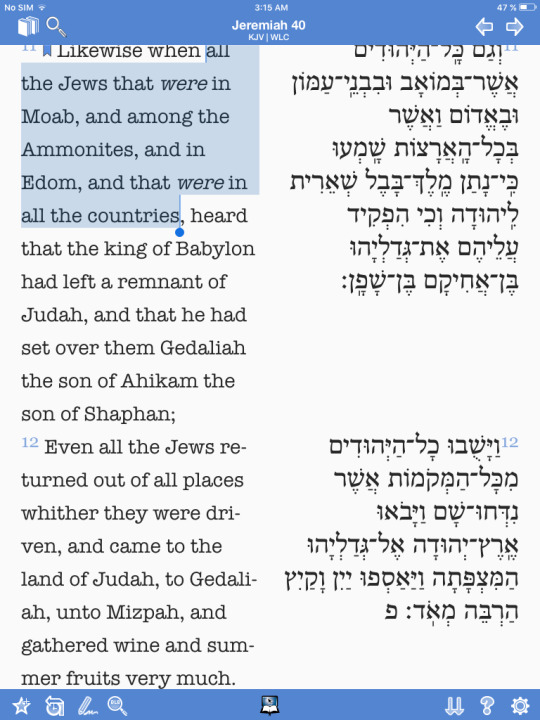
... Yehudites used to live in other tribes or countries as same as Jews in our world, contrary to the House of Israel & Judah who preserve the ethnicity & nationalism under Jehovah's religion. Yehudites are not belonging to this House. That's the critical difference. Esau & his clan didn't practice Abrahamic traditions (Ex: sacrifice, circumcision, Altar worship, burying own kins to Hebron / Kirjath-Arba : the City of Giant Anak!!), nor commit the unclean life to set apart among gentiles (Ezra 9:1-2 shows that Edomites are not included in "Goyim List" who taint the Holy Seed). In Daniel 1, 3 Yehudites & Daniel avoided the king palace's foods and took the food controls not to be defiled (Also read Ezra 9:11-12).
*Condition of Yehudi : Marrying or living with foreign races *Condition of Yehudi : Not following nationalism or fascism *Condition of Yehudi : Not joining to Jehovah's religion (Ex: sanctifying by blood) *Condition of Yehudi : Keeping clean lifestyle *Condition of Yehudi : Taking care of healthy foods ("Kosher") not to get defiled
... Look further at the details of Judith's background.
Anah's father is Zibeon (Tsib'on; sounds similar to Simeon) which means "coloured". He is a Hivite ("villager") whose origin is derived from the word "Havah (Eve: Adam's wife)". Eve is the mother of ALL THE LIVING (not only for human). In fact, this linkage is Seir ("hairy" or rough mountain as if clothed by trees like hairs; recall Esau and Eden story in Genesis 3:7 & 3:21); the Horites who are Cave dwellers. These names exactly indicate what they are really. Imagine.
Interestingly, it was Anah who had found the spring in Genesis 36:24 as same as Hagar for Beer-Sheba (later Simeon's territory) in 21:14-21. Genesis 26:34 also shows that Judith is the daughter of Beeri ("My Well / Spring"). So Shekinah Glory is with this linkage (The difference is that Hagar found the lifeline water in desert with help of God's messenger while Anah found it by him/herself; Know that spring & fountain are associated with Eye of God or Divine Jacob in the OT, for example Ezra 5:5, Deuteronomy 33:28). Shekinah is always there, while Lord God used to come and disappear. Remember that in the stories of Joseph, Esther, Ezra & Nehemiah, Lord God don't speak nor appear. But Joseph, Mordecai & his fellows are invincible and protected by people. And it was only Yehudites under God's Eye who restarted to build Jerusalem despite the threats of enemies (Ezra 5:5). God is with 'Yehudi' (Zechariah 8:23).
*Condition of Yehudi : Shekinah (lifeline protection) without prayer
Later, Sons of Esau chased away Horites the cave dwellers and destroyed them (Deuteronomy 2:12 & 2:22) as the Seed of Woman crashing the head of Snake. They eliminated these monstrous ancestors as if denying own evil background and built the new settlement on there.
*Condition of Yehudi : Seed of Woman / Mother (not always biologically) to crash Evil
Such a passion, dedication to justice is shown in Mordecai. It was him who had leaked the Persian king through Esther about the assassination plan against him. So Yehudites should be the people of Justice. In fact, under the order of Esther & Mordecai, Jews destroyed own enemies who conspired Evil but didn't steal their goods, because they're fighting for justice & self-defense, not for war nor greed, while Children of Israel used to engage wars to take plunder from enemies in the name of god. You should know that Mordecai & his fellows could steal enemy's money & treasures so that their clan can become more powerful like former Children of Israel. That would be good for them, but didn't do that. Why? The story clearly shows that their aim is the fight for dignity. Think twice.
"Mordecai 'Yehudi' was 2nd (Hbr: Mishneh; sense of imitator or dual) to King Ahasuerus and great among 'Yehudim' and highly esteemed by many of his Brothers by committing the Good for his people and speaking 'Shalom (The well-being, wholeness, health, "perfect" state, harmony or friendliness)' to all his Seed (Hbr: Zera)." [Esther 10:3 (My translation from Hebrew)]
*Condition of Yehudi : Fight for justice, dignity, self-defense or own beloved
The Hebrew word 'Zera' is not really the biological stuff, but also something like talent or DNA heritage. I will explain more about this aspect.
<Tribe name or Talent?>
Esau's offsprings have been living this region Seir including Elath until Aram king Rezin expelled "Yehudites" (2 King 16:6).
... Not Edomites? But Yehudites? So it's the Species of Judith? This naming itself signifies us "Seed of Woman / Mother". Not sons of Esau, but Judith's. They're the pure Seed of Woman / Mother among Edomites (Adam), when the author wrote 'Yehudi(m)'.
Probably, you might get aware that 'Yehudi', 'Hivi', 'Hori', 'Edomi' is not the naming of biological linkage. Tribe name should be only one. So it looks strange that Anah is of Hivite & also Horite, especially in Semitic sense considering only father's bloodlines. So it'd be ideal to determine that these naming is the species, type, category or even trait, not clan's.
Judith's ancestors are monstrous, however Esau the New Adam & his High Tabernacle created the new generations to deny their ancestors and annihilated Seir the Horites. But the Hivites (species of Eve) are remained while Horites never appear after this event. Interesting, right?
So all the Esau's descendants are biologically Yehudites? Unfortunately, No. We should focus on this factor : The author of the Holy Text is not always describing 'Yehudi' for Edomite. In the almost of verses, it is "Edomite" or "Son(s) of Edom / Esau". 'Yehudi(m)' is used in limited aspect. We should consider this factor to distinguish 'Yehudi' with biological son of Esau or Judah. As I mentioned, Judah's descendants are described in almost of case as 'Bani (sons) / 'Am (people) / Ish (man) Yehudah' as same as "Children of Israel (Bani Israel)". So 'Yehudi' is the trait or talented species in Edomites.
By the way, some people might ask "Judith (Yehudith) became Oholibamah. She lost the name 'Yehudi', so she is not Yehudite anymore?" I answer this question.
In the Book of Daniel, there are 3 Jews : Shadrach, Meshach & Abednego. Actually these name are given by the prince of the eunuchs in Babylonian Exile period (Daniel 1:7). Abednego is derived from "servant of god Nabu / Nebo (See Isaiah 46:1)" whose father is Marduk. So Daniel's companion Azariah forcibly got renamed as foreign god's servant, but he & his rest fellows Hananiah & Mishael could survive in the midst of burning fiery furnace (Daniel 3:8-30). So name change never affect the power of Yehudites. Yehudi is always Yehudi even though he/she changed the name. Same is Mordecai ("Worshipper of Mars" or "Marduk's species").
In our real life, your talent will disappear by name change? Of course, no. Heritage is not inherited to all the biological descendants, but its talent is always preserved, if you have the trait. That's it.
*Conclusion : Not all the biological nor religious Jew are 'Yehudim'
... It's the trait. So how many conditions above are fulfilled is the criteria.
The ability of Super Human is described more in the Jewish Bible. I introduce it further now.
<"Ben Yamin"; Pair of Right & Left>
"Ben Yamin" is the title of mighty man with right & left handed. It's not about Benjamin tribe. In Hebrew, spelling is different.
One of the greatest "Ben Yamin" is Ehud the son of Gera (Judges 3:15). Similar name to 'Yehud'.
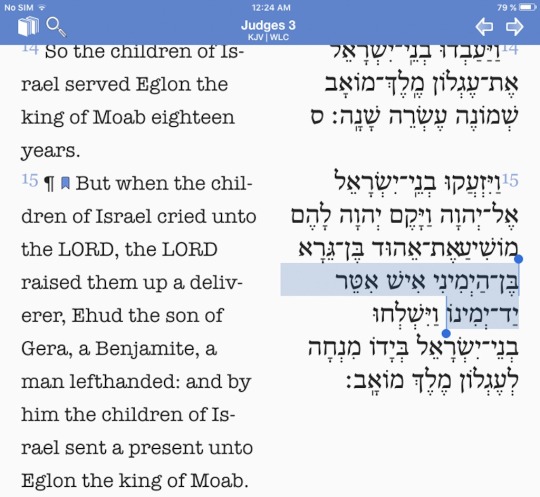
... He is the son of Gera who is a biologically direct Benjamin's descendant. Not only that. Ehud is "Ben Ha Yamini"; the person of left-handed with right-handed who would save Children of Israel from Moab's oppression.
The story is interesting. Ehud brought 2-edged dagger and put it in his right leg. And took it by left hand to kill the king Moab (Judge 3:21). This episode is absolutely not a random event. The design of the author is reflected. Numerology "2" & pair. His name Ehud is derived from 'Ohad (unity)' & 'Ahad (to unify)'. 'Yehud' is also similar to these words.
These factors show the nature of 'Yehudi' : Balance of Pair, Unity
Jamin (Yamin) is the 2nd son of Simeon (Genesis 46:10). Simeon himself is the 2nd son of Jacob, so "Ben Yamin" is 2-2 as symbolically pair of 2 opposite elements. See also that Jewish Mordecai's ancestor Jair (son of Manasseh, but also Judah's descendant; 1 Chronicles 2:22) served Israel as Judge for 22 years (Judges 10:3).
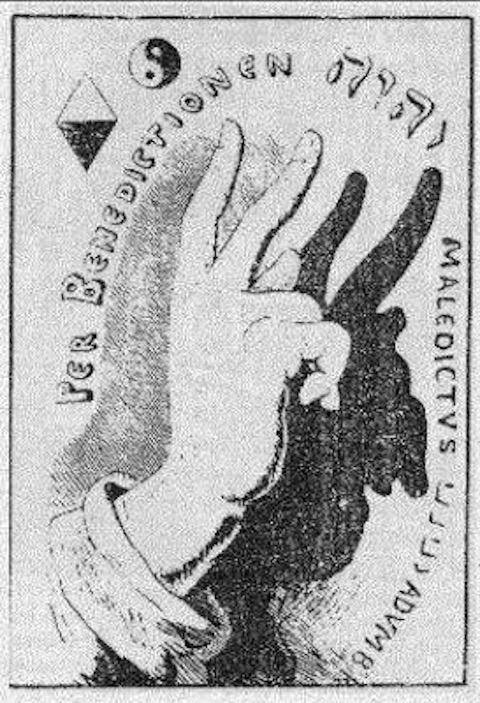
Interestingly, Simeon is excluded from Moses' "blessing" in Deuteronomy 33. While Israelites are not so successful or have short-term success under Lord Jehovah, "Ben Yamin" & the Seed of "Yehudi" (especially Mordecai & his fellows in the Book of Esther) are invincible. Mordecai's possible ancestor Kish the father of King Saul is also the "Ben Ish Yamin" (1 Samuel 9:1-2).
Shimei (possible ancestor of Mordecai) is also called by David "Ben Yamin" in 2 Samuel 16:11 because David acknowledged Shimei as David's own spiritual son coming from his belly to rebel him for justice and admitted Shimei's brave action as Lord's will. Shimei cursed David, but he forgave Shimei (it means that he rebelled the king to risk life but got saved; Shekinah Glory!).
The OT has many Shimei. In 1 Chronicles 23:9-10, there are 2 Shimei (double-counted). Under righteous Hezekiah, Shimei is the 2nd officer to serve him (2 Chronicles 31:12).
Seeing these factors, we cannot deny that "Ben Yamin" is associated with numerology "2". Moreover, this phrase begins by 2 letters; 'Bet (2nd letter of biblical Hebrew)' & 'Nun (14th letter; it's holy number)' and ends by holy 'Nun' again. The first & last letters of "Ben Jamin" also becomes "BN (Son)" (which means Christ for Christian). 'Ben' itself means holy "2". The phrase "Ben Yamin" has 2 words.
On the other way, Mordecai the hero of Jews is "Ish Yamini (person of Yamin's species)". It begins by 'Aleph (1st letter; symbolism of God)' and ends by 'Yod (10th letter; initial letter of Jehovah)'. So he prevails all the number (1-10). He starts at 1 and at last becomes higher position (10 means higher rank than 1-9). This numerology itself shows his life. It's a progression. Also, he has Elohim & Jehovah as pair (Lord God). He was "2nd (Hbr: Mishneh; sense of imitator or dual) to King Ahasuerus" (Esther 10:3).
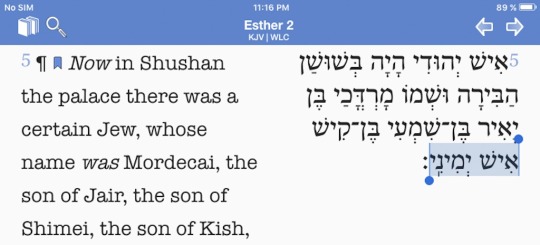
... Esther 2:5 described Mordecai in Hebrew "'Yehudy' [...] Ben 'Yaiyr', Ben 'Shime'iy', Ben 'Kiysh' : 'Iysh Yamyny'".
Is this just genealogy? Of course, No. These ancestors are all associated with numerology "2". Then, he is a "Man of Yamin (right-handed with left handed)".
In Semitic languages, the term "Man of Right-hand" signifies successful person or great one. So right-handed with left-handed is not only symbolical state of pair but also simply the mighty man who can handle the difficulty with 2 arms.
The word 'Esau' has similar meaning. It's apparently a form of the passive participle of verb 'Asah (to do, fashion, make, accomplish, etc)' in the original sense of handling; rough. Struggling, but talented.
The concept of Super Human 'Yehudi' reflects these elements. It is easy to realize how vulnerable & unstable life the Children of Israel was. They had temporarily success but couldn't keep it all the time. Lord God are not always caring about their lives (they don't have Shekinah Glory). They're inheriting the traditions of Abraham & Moses, however their spirits are so weak to temptations (It's 'Nephesh'!).
So you might ask "Why failed? What was wrong? What is the condition?" Let's analyze the consequences & Babylonian exile events now.
<One history, Two witnesses>
Books of Kings & Chronicles have same historical records, although it has different details. Why different? Which is the liar? That's the point.
Of course, we should consider the possibility of mistakes or errors by scribes. But according to my research, this "contradiction" is aimed by the author.
The Bible is Word of God & Holy Text. But this DOESN'T MEAN THAT ALL THE STATEMENT OF EACH VERSE SPEAK FACTS. The Bible is truly the riddle and great provocation. We have to see the cause & result in each episode to think "Why?" That's God's challenge to us. The one who is not doubting the brutality nor seek true God would be entrapped by literal story which promote the bloody religion for success and would be destroyed by own greed. Both the OT & NT are so designed.
Why different? Let's pick up the example of case after Aram expelled Yehudites from Elath and see what's next. The details are not same between 2 Kings & 2 Chronicles. I write the summary about it below :
Book of 2 Chronicles (Ephraim side) : The king of Aram attacked Ahaz's dynasty to deport people in Judah and Pekah killed 120, 0000 people; all the "Sons of Brave" (Hbr: Bnei Hayl; men of "Force") in Judah. Yehudites are not found here. Israelites captured the people of Judah. The prophet Oded lectured them not to enslave their own brothers & sisters. Israelites changed the minds and helped them to send Jericho. Then, Edomites came to Judah to capture. Philistines, too. But after that, sinful Ahaz died and his son Hezekiah (Hbr: Yuhizeqiyahu) miraculously restored Israel & Judah to unite each other. His mother's name is Abih ("Father of Ya") / Abi ("My father"). The female has male name (model of Elohim). No mentioned about killing or capturing Edomites / Yehudites. Then, Assyria's servants came by Yehudith language to deceive & threaten people in Jerusalem (it means there are Yehudites). But Jehovah sent agents to annihilate the army of Assyria and its king got killed by his own children. Moreover, Moses' Torah got found from the Temple to restore the Laws of Jehovah. Then, Babylon came to Judah, but not so cruel. Jehovah is quite merciful and used to send agents to convince His people to repent, while they were not listening. Finally, His wrath got stirred up to send horribly brutal Chaldean army to steal everything, kill the people, destroy the Temple & Jerusalem. But the story ends by mentioning the hope of Persian king Cyrus to save Israel.
Book of 2 King (Judah's side) : The king of Aram Rezin expelled Yehudites from Elath (former Edom's territory), then Assyria killed Rezin and captured Damascus to deport its people (Aramean) into Qirah. However, the Kingdoms of Israel & Judah started to be enslaved & deported by Assyria, which then brought foreigners to Samaria (Main land for Kingdom of Israel) in order to taint its holy place. Even righteous Hezakiah (Hbr: Yuhizeqiyahu) could not stop Assyria from capturing & destroying Judah. Later, Jehovah avenged Assyria, but didn't completely annihilated all their force. One more righteous king Josiah came to restore Torah traditions, but he couldn't change Jehovah's decision to remove Israel & Judah (2 King 23:26-27). Not only Babylon also Chaldean, Aramean, Moabite, & Ammonite armies (but not Edomites) came to Judah due to sins of king Manasseh. The consequence is terribly worse than stories of 2 Chronicles. Almost of people in Judah got deported to Babylon. But Ishmael & his 10 men killed Babylonian watcher Gedaliah, Yehudites & Chaldeans and escaped to Egypt. And in the end of the story, sinful traitor Jehoiachin who had sold his own people & treasures got released from prison by a new king of Babylon.
... How do you detect the difference?
In the side of 2 Chronicles, Yehudites are not killed. After the righteous guide of the Prophet Oded, people of Israel & Judah repented to unite together. Then, Edomites (possibly, including Yehudites) came to cause the hunting in Judah and took the captivity. No direct mentioning that Edomites killed sons of Judah (Read 28:17 in Hebrew). Then, the miracle works of Hezekiah accomplished. Babylon came, but in soft manner. Jehovah used to warn people so that He can avoid to wipe out Israel & Judah.
On the other side of 2 Kings, Yehudites got expelled by Aram from Elath where had received the restoring work by Azariah the king of Judah (2 Kings 14:21-22). It seems that Edomites & people of Judah were living together there. But after this expulsion of Yehudites, the king of Aram got killed and both Kingdoms of Israel & Judah became vulnerable against foreign forces. Hezakiah couldn't stop Assyria. Although Josiah had restored Torah, Jehovah didn't change the mind to forgive them. The vast numbers of foreign armies destroyed Jerusalem. Almost of people got deported. Many genocides & robbing. Under such circumstances, even Yehudites there got killed by Ishmael and the traitor king Jehoiachin obtained freedom.
... Did you see the difference?
1, When somebody harmed Yehudite, he/she get avenged somehow.
2, When Yehudites are persecuted, the world loses the harmony to increase the conflict.
3, When Yehudites are not protected, Lord God are cold and Children of Israel & Jerusalem become unsafe.
4, When such a protection power of Yehudites is decreased, even other Yehudites become in danger and sinful people get luck.
... Surprising?
You might say "Yehudites are actually the Messaih for Jewish people??" The answer is Yes (but not exactly same with what today's religious Jews define).
Probably, ordinary people couldn't imagine that 'Yehudim' are Divine creatures equal to God, although their appearance is nothing different with ordinary persons. They're not Lord God, however are the Perfect Adam & Super Human. If anyone hurt this living Divine, he/she will "pay the price" to be cursed. On the other way, if anyone welcomed them, he/she & its clan will obtain safe & blessings. Recall the Promises by Lord God to Abraham in Genesis 12:3. Mordecai also has same protection (Esther 6:13, 8:7, 9:1).
You might be afraid and say "Who is Yehudi??" I wrote the conditions already above. One more again, I list up simply below :
{- Primary conditions for Seed of Yehudites: Perfect Adam -}
1, Seed of Woman / Mother to crash Evil (not literally biological female); Heroic figure 2, Godly Spirit against Evil & unfairness 3, Having Male & Female (inner nature, names, roles, etc); Symbol of pair, not literal 4, Name change (by own will to erase the past or forcibly by someone) 5, Denying own sinful kinship & its tradition, even destroying them 6, Deal or Fight for justice, dignity, self-defense or own beloved ones (not for greed) 7, Marrying or living with foreign races 8, Keeping clean lifestyle 9, Eating healthy foods or careful of defiled foods ("Kosher") 10, No original sin (Godly person to love harmony and avoid sins) 11, Not associated with Abraham's religion; Lord God do not interfere to sinless 'Yehudi' 12, Shekinah (Always protected; If anyone attacked, he/she would be revenged) 13, Divine power to bring the blessings for anyone who welcome 'Yehudi'
{- Possible conditions of Yehudites -}
1, "Ben Yamin" (person of right & left-handed); 2 unified mighty power like Elohim 2, Associated with number 2 (Ex: birthday, 2nd position); Symbol of Unity or Harmony 3, Red colored (especially Hair); David is not 'Yehudi', but is ruddy and mighty hero 4, Loving Red coloured foods (Genesis 25:30); Red is associated with Edom / Adam 5, Not embracing nationalism or fascism
... As mentioned you, 'Yehudi' is "Zera" & the trait. However, Esther 8:17 narrated that many people of the land are going to imitate Jews. You may question "So we can become Yehudites??" This is the great theme.
The simple answer is "Kinda yes". 'Yehud' is the species & Heritage. People cannot obtain it by work, if they don't have it potentially. In other words, it is possible that they might "awaken" to 'Yehud' through life events, if their ancestors were Idumean (Edomite). The existence of idumea is academically proved. It's not a legend.
Or, people can literally practice / follow Yehud's model. I wrote the primary conditions above. These are all able to be imitated (except Shekinah & Divine power), while YOU CAN NEVER EVER BECOME CHILDREN OF ISRAEL IF YOU DON'T HAVE THE BLOODLINE OF THEM. That's the biggest difference.
You might say "Isn't that Judaism??" Well, kinda. But today's Judaism as religion is well-organized too much and I don't think we can become 'Yehudi' there. They define "Jewishness" according to their traditions.
For example, Judaism as religion defines Jew as "one who is born from Jewish mother". Of course, this concept is coming from Genesis 3:15. But the problem is that they determine the Seed of Woman / Mother literally. As I explained above, Esau is male but a Seed of Woman / Mother. This combination itself has the very important meaning (Elohim model). Judaism as religion ignores or doesn't consider this factor. So not all of them you would agree.
<Then, Who is not 'Yehudi'?>
Who is 'Yehudi' or not shouldn't be determined by the system. Anyone can say "I'm God's chosen race!" But this is absurd according to Torah's concepts. Everything began from this Book Torah / Tanakh (Bible). How could you know the origin & identity 'Yehudi' without reading it?
If someone believes him/herself to be 'Yehudi' just because the parent said "You're Jewish, because I am a Jew!", it'd mean it's race. That's wrong. Children of Israel are ethnical tribes, while biblical 'Yehudim' are not so. 'Yehudi' is the Man of Justice and Godly person as trait. You cannot buy it by money nor religious conversion.
The term "Jew" is obviously social position : Anyone who has the "Jewish" background would be a Jew. Biblically, Children of Israel & Yehudites are opposite each other. 'Yehudim' are not exactly same with sons of Judah nor even Edomites. This social category "Jew" includes all of them (also Samaritan Jews). Each are very different almost like another race. Some follow ancient Israel's way, some practice religious stuffs, some just read the Bible, some rebel this tradition, some just believe to be one of God's people, or other some even don't care ...
The only common thing is that they have "Jewish" background.
As I already explained, not all the Jew are Yehudites as same as Biblical figures. 'Yehudi' is the trait, so to speak DNA heritage. Unfortunately, not everyone can become 'Yehudi', but we can promote them this wisdom so that they can imitate the way to "become" Yehudites (Esther 8:17). So what is different between Jews & Yehudites?
For instance, the English word 'Jew' doesn't contain D letter & sound. I just wonder if "Torah Bearer" does care about it when someone said "I'm a Jew".
The Arabic word 'Yahu' is used by Muslims for addressing the evil Jew. The regular spelling is actually 'Yahudiya'. Again, without D letter. Do you know why? See some examples of Hebrew words:
Dawd : Love David : The King David Oded : the Prophet Oded who brought unity to Israel & Judah (2 Chronicles 28) Ebed : Servant ...
Semitic letter D essentially has the meanings of "Dedication": Love, Passion to serve, Deserving something Special or Chosen, Separated ...
Be aware why & how the inventor of words 'Jew' & 'Yahu' made it without D. How much important for God's people to keep Love & commitment for justice! Otherwise, they're nothing special to be worth chosen ones ("without D").
While you're a Jew, you can pick up any way to live. But the way of 'Yehudi' is not for everybody's. The true passion to dedicate the Torah culture for wisdom and to seek the true God for genuine faith ... Not everyone want to walk this way. Some are just lazy, some just don't care, other some actually want but cannot in any reason.
Some conspiracy theory sites revealed how the Elite Jews think about ordinary Jews. They're Lesser Jews who just must serve the Elite Jews for higher purposes. Why are the Elite Jews treating them as lesser? Probably, because they're the most close to Torah and know Hebrew language but don't understand its wisdom and even don't care to believe "Abraham is a Jew" without doubt.
Today's term 'Jew' is exactly set by the political concept, especially for gentiles who want to become "Jews" due to personal, religious or political agenda. Ordinary people perceive 'Yehudi' the Super Divine Human as today's Jew. Not exactly. But the Elite Jews are real 'Yehudim'.
If you are 'Yehudi', you would doubt such a political concept above and seek the true God by yourself to reject what humans ("people of the land"; Am Ha 'Arets) preach about god. The society is more important to define you to be a Jew more than your Holy Torah? We have Torah here. Let's read it in order to dedicate the Truth. I am the one who is helping you to understand the mystery of the Holy Text so that you can find the true God's people among you and detect "Synagogue of Satan" who pretend to be God's chosen ones but behave nothing same with true 'Yehudi' or even commit injustice in the name of Jew or god (Caution: I'm not a Christian believer).
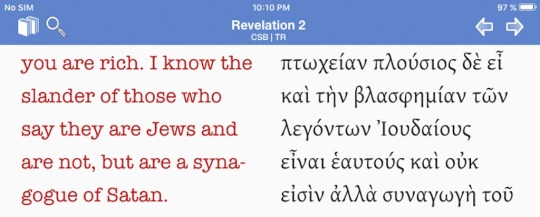
Yehudites are truly the Messianic figures. The Messiah is not only one, as many names of it are written in the Bible. Even though one Messiah died, other Messiah around the world should continue enlightening all of us. Each of them might be weak, but their total power is aiming to its goal : The Age to Come; The world of Harmony (Shalom).
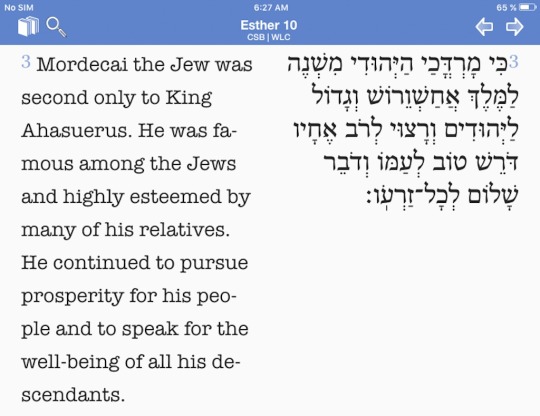
... On the other side, I admit that not everybody can become same. Unfortunately, the genius is positioned under 5 % while other 95% cannot reach to this level. Lord God made us like this. They have the responsibility for it. We cannot say "Oh, 95% of populations are garbage and they cannot become Godly like ours! So let's kill them all!!" I'd say that each of them have any talent and can use it, if they want to get higher for better world. Jews are same.
Priests cannot be construction workers and vice versa. If Jews want to serve their religion for Israel, let them do it. But if they're eager to become the genuine 'Yehudi' as Messianic role, let them walk this way. They're the ones who detect the Fake Yehudites who show the bad example by ungodly attitude and disturb the dignity of the true God's people.
30, July, 2019
2 notes
·
View notes
Text
Machiavelli and Nietzsche, Philosophers Foreshadowing the 21st Century
l. Machiavelli has been for a half millennia reviled as an unscrupulous philosopher when it is unfair to presume that a philosopher who was raised in the 15th century and died in the year 1527 could subscribe to 20th-21st-century ethics. Machiavelli’s Europe was a continent where the devoutly religious would sometimes practice excruciatingly painful torture on heretics. Next, to them, Machiavelli was practically benign. Machiavelli can be considered the first modern philosopher in that he deliberately, cautiously attempted to escape the philosophical clutches of the past.
Machiavelli’s 15th-century focus was much narrower than Nietzsche’s, yet more incisive. In comprehending the 15th and 16th centuries when Machiavelli lived, religion is paramount in doing so. A nominally religious public perceived itself as virtuous and along came Machiavelli to tactfully tell the public otherwise. However, he did so not merely to criticize, but also to demonstrate a ‘better’ (expedient/pragmatic) way, to educate readers in how deceit can be, “the bodyguard of truth”–Winston Churchill
Machiavelli did not reject religious values, often he ignored religion; sometimes he transcended religion. One might write that Machiavelli anticipated a 20th-21st-century hollowing-out of religion by subtly advocating a well-balanced religiosity. In Machiavelli’s formulation, pious religion has its place albeit is no longer central. In the 15th and 16th centuries, this was something new for a well-known philosopher to expound.
At any rate, Machiavelli wasn’t Galileo, hinting that the Earth was not the center of the cosmos and, by extension, that humanity was not at the epicenter of God’s concern.
What is critical in understanding Machiavelli is how he understood how being moral– even so much as trying to be ethical–both an individual and a nation risk being ruined or destroyed by more ruthless individuals and groups. Machiavelli’s political advice anticipated the ideology and ‘realpolitik’ of Talleyrand and Bismarck.
15th century Machiavelli shared with 19th century Nietzsche a mittel Europa outlook. For brevity’s sake, one cannot go into how 15th-16th century Italy, divided into numerous nation-states and city-states, influenced Machiavelli’s philosophy. That Rome, the center of Catholicism, is on the Italian peninsula needs no comment; and that Machiavelli was influenced by Rome and its faith is not difficult to appreciate. The Protestant Reformation was late in his life and did not have much effect on him.
Machiavelli in ‘The Prince’ and other of his published works, never advocated that a potentate ought to abandon ethics, he advised that a ruler should not allow devout, pious considerations to hinder the prince (which means Principal) from obeying his conscience as a ruler. Machiavelli wrote in ‘The Prince’:
“Everyone agrees that a prince should have all good qualities, but because that is impossible, a wise prince will avoid those vices that would destroy his power and not worry about the rest. Some actions that seem virtuous will ruin a prince, while others that seem like vices will make a prince prosper.”
Don Corleone, the fictitious Godfather, said eloquently, “let your friends underestimate your virtues, and your enemies overestimate your vices…keep your friends close, and your enemies closer”
The corollary is probably the most famous quote from Machiavelli, “it is better to be feared than loved…”
The legacy of a bad ruler is complicated but not hopeless; the duty of a person of conscience is to mitigate as much as possible an inherited legacy lacking in conscience. Now it is valid to write that Machiavelli was not promoting positive ethics of any sort: however, this would require a book to explain. Even then it could not accurately summarize 5,000 years of records revolving around secular mores and faith-based conventions.
Suffice it to write that Machiavelli though exhorting less for effect than Nietzsche, was exploring the limitations of ethics. Machiavelli did stress the importance of states being militaristic; for him, the states of Italy could only survive and thrive through military preparation. All the same, Machiavelli did not promote militarization for the sake of militancy alone; rather, his 15th-century upbringing commanded him to be militaristic for patriotic & nationalistic ends. He, like Nietzsche, has had his militaristic imperialism excessively emphasized by his critics. Nevertheless, by the lights of the 21st century, Machiavelli cannot be perceived as any sort of a peace lover.
Today in a time when so many uses ‘Machiavellian’ to denote a person or group lacking scruples, it must be remembered how the same people who detest Machiavelli and his militarism pay taxes to fund WMDs capable of destroying the biosphere. Machiavelli’s sin was to a lesser extent the same as Nietzsche’s: not being diplomatic enough. Even though ethics are used as a means to an end, such is not supposed to be confessed to a broad uncomprehending public. And both Nietzsche and Machiavelli agreed on the public’s lack of comprehension.
—————————————————————————
II. Nietzsche’s philosophy was wide-ranging, covering art, history, music, politics, religion– and well nigh everything under the Sun. One of his more popular concepts is that of the Übermensch– the ‘superman’. The public has exaggerated Nietzsche’s ‘superman’ to be physically superior (e.g. the Superman of comic books, TV, and films). In his famous book, ‘Also Sprach Zarathustra’, Thus Spoke Zarathustra, published 1883, Nietzsche did suggest a goal of being more evolved.
Though naturally a superman is expected to be strong, a superman is also aesthetically and to a lesser degree, ethically ‘evolved’. Or to be more exact: ‘over’– that is, above & beyond. For ��ber translated from German means over, as well as ‘superior’. The overman rises above and beyond the herd aesthetically, intellectually, and sometimes ethically. Ethics were less important than intellect and aesthetics to Nietzsche, because for starters Nietzsche, though he did not reject religion altogether, did think religion frequently sacrificed strength and intellect in the service of ethics. Nietzsche felt that Christianity, being a prominent example of faith, excessively emphasized meekness and weakness. Meek in the sense one is humble before God and weak in different ways. Most commonly, weak-minded. Weak willpower is another factor in why and how Nietzsche critiqued religious morality. Nietzsche wrote, “God is dead.” Nonetheless, he did so to impress; and though this is nothing more than a hypothesis, he might have been looking to the remote future. By the second half of the 19th century, it became apparent science would be important in the 20th century and would alter religious beliefs and practices. Nietzsche writing that God is dead appeared original to a public not familiar with deism and by the interwar period, the majority of educated Europeans did think God was dead or dying. It must be reckoned in interpreting Nietzsche that he frequently wrote in a flowery Mittel Europa style.
Due to his influence on 20th century educated European God-is-Dead public, Nietzsche is sometimes held partially culpable for the rise of totalitarianism, another instance of exaggeration. Nietzsche can not be held responsible for totalism any more than the historical Christ can be blamed for excesses committed in His name. In the book of Matthew verses 34-36, Jesus preached,
“Do not suppose that I have come to bring peace to the earth. I did not come to bring peace, but a sword. For I have come to turn a man against his father, a daughter against her mother, a daughter-in-law against her mother-in-law— a man’s enemies will be the members of his own household…”
Scarcely ecumenical, let alone filial. As Nietzsche was a Nazi icon, he has been widely associated with Nazism; however, if he had lived three more decades he would have considered Nazis to be guttersnipes. Nietzsche’s weltanschauung (welt-anschauung translated from German is world-view) meant he saw the world filtered through a 19th-century Mittel-Europa prism. Nietzsche attempted heroically to escape such a mindset, but there is no way someone living in 19th century Europe could truly escape. Not for long. Nietzsche tried with all his strength to transcend, so much so that it might perhaps have cost him his sanity, or at least what the definition of sanity was via the primitive psychiatry of the late 19th century. He died in the year 1900.
What Nietzsche did was incorporate 19th-century European weltanschauung in his own expansive world view. One might with accuracy write that Nietzsche comprehensively surveyed the world and attempted to transcend the past. For better and, naturally, worse. Worse because in forcefully transcending the past, one brings into play various unintended consequences.
Nietzsche, like Machiavelli, is not easy to categorize; though as we have seen above, Machiavelli was more politically oriented than Nietzsche. One of Nietzsche’s more infamous exhortations concerned, “the magnificent blond brute, avidly rampant for spoil and victory.” The above quote, in particular, illustrates Nietzsche’s origins and bombastic style more than substance. To be a 19th-century European male, one had to some degree accept imperialism and racism. Otherwise, a man risked becoming an outcast. The 19th century saw the rapid conquest of empire for a number of nations in Europe and elsewhere.
The “Eisen and Blut” (Iron and Blood) values of Nietzsche’s contemporary, Bismarck, could not have allowed Nietzsche to be overtly pacifistic. Nietzsche would have filed his draft card away, not burned it. Nietzsche’s most salient negative trait was his misogynist weltanschauung, the chauvinist in,
“the magnificent blond [male] avidly rampant for spoil and victory”. Nietzsche wrote that women ought to be treated with a “whip”. Nonetheless that he loved women as individuals and that his devoted sister took care of him, indicates Nietzsche’s dislike of women was derived from his bombastic, for effect, to impress-the-reader style. Nietzsche lived a bit before the era of Suffragettes. Plus, Bismarck’s ‘Blood and Iron’ left little room for femininity– ‘feminism’ still meant cosmetics, coiffure, gowns. Also, twelve decades after Nietzsche’s demise, men still dominate women. Hypocrisy has always been, “the homage vice pays to virtue”– Francois de La Rochefoucauld.
Machiavelli and Nietzsche, Philosophers Foreshadowing the 21st Century was originally published on transhumanity.net
#futurist#Machiavelli#Nietzsche#Philosophers#philosophy#crosspost#transhuman#transhumanitynet#transhumanism#transhumanist#thetranshumanity
1 note
·
View note
Text
Compare the idea of exploitation in Marx and Fanon
[This essay was submitted as part of the ‘History of European Political Ideas’ module at UCL. The resultant grade was 75.]
This essay presents an analysis of the notions of exploitation proposed by Marx and Fanon; both the act of exploitation and how it is sustained. In evaluating and comparing the thinkers, I will initially expound upon the key concepts which I consider to be of most analytical value. With Marx, it is necessary to understand the structural nature of exploitation; whilst Fanon emphasises the role violence plays in engendering exploitation and, in addition, its interaction with the social. An understanding of Fanon’s appreciation of the social is essential, in my view, in order to grasp the role exploitation plays in the construction of identity. Whilst the comparison accentuates differences it also highlights flaws; namely Marx’s inadequate theorisation of alienation and, in light of Fanon’s analysis of colonialism, the assumption that labourers have the right to comodify their labour. In my opinion, the comparison of these two thinkers’ works highlights the extent to which an appreciation of the social is necessary for understanding the evolution of forms of exploitation, and thus, I conclude that Fanon presents a more useful theory.
Marx, historical materialism and exploitation as a feature of the labour-capital nexus
Firstly, in understanding Marx’s approach to exploitation the principal concepts I will draw on are his development of historical materialism and the physical and psychological exploitation which, for Marx, are an invariable feature of living in what I have termed the ‘labour-capital’ nexus, that is the inevitable consequences of labour being traded for capital under capitalism.
Marx’s belief that capitalism creates structural features that lead to the appropriation of a labourer’s produce stems from the theoretical framework outlined in ‘A Contribution to the Critique of Political Economy’ (1859). In building his philosophy Marx argues ‘neither legal relations nor political can be comprehended’ by the ‘general development of the human mind’ but instead ‘they originate in the material conditions of life’ (1859; preface) and thus, all labour is a manifestation of ourselves (1844; 4). Under capitalism, labour becomes commodified, and thus the labourer, as opposed to working for his own realisation, works on behalf on capital in order to survive. As a commodity, the labourer ‘gets the smallest and utterly indispensable part of the product - as much, only, as is necessary for his existence as a… slave class of workers’ (ibid., 5). Marx described the difference between the full amount of his produce and the worker’s subsistence wage in Capital as ‘surplus value’, or the ‘exact expression for the degree of exploitation of labour- power by capital’ (Marx, 1868; 153).
The key point of interpretation here is that for the labourer, living under capitalism necessitates the commodification of labour, and thus guarantees his exploitation. Again drawing on his historical materialist perspective Marx posits the Lockean notion that ‘the product of labour is labour which has been embodied in an object’ (1844; 29), outlining the relationship between labour and the self and the economic means of production and subjectivity. Thus Marx deduces that the process of labouring for capital constitutes the psychological alienation of the labourer, insofar as his produce confronts him as something alien, ‘tormenting’ him to the point where he exists ‘first as a worker, and second, as a physical subject’. Alienation constitutes psychological exploitation as the process of labour means ‘his life no longer belongs to him but the object’ (ibid., 29). Thus, man, living within the capital-labour nexus, is driven toward economic (surplus-value) and psychological (alienation) exploitation as a matter of fact; a feature determined by the rules of the economic system.
Fanon, violence and the social, and identity
In understanding Fanon’s exploitation I will draw on his conceptualisation of violence, its impact on the social and the consequent need for psychological study. Philosophically, Fanon also draws on a historical materialist perspective, arguing decolonisation ‘can only be understood, can only find its significance and become self-coherent while we can discern the history making movement which gives it form and substance’ (1963; 2). However, whereas Marx theorises exploitation as an unavoidable systemic consequence of the labour-capital relationship; Fanon is theorising an exploitative system without an integrative exchange process (meaning labour is not exchanged for capital). Consequently, Fanon argues ‘violence’ and ‘cohabitation’ constitute ‘the exploitation of the colonised by the coloniser’ (ibid., 2), due to the fact that the violence inherent within colonialism restricts the colonised’s autonomy of the colonised.
In order to understand how exploitation is sustained, Fanon incorporates elements of the social and its interaction with violence. Colonialism creates a world in which the colonised are dehumanised, devoid of values and ‘quintessentially evil’ (ibid., 4). To simply understand the creation of a world of ‘different species’ (ibid., 4) is insufficient; it is necessary to understand the means through which this state is normalised. Fanon identifies the state of exploitation to be maintained by: a ‘language of pure violence’ (ibid., 4), the regulatory pacifism promulgated ‘by the inescapable powers of religion’ (ibid., 28), the division of the colonised into groups (ibid., 8-9) and the stifling of self-expression (ibid., 20). The state of exploitation culminates in the impregnation of the colonised’s shared reality, when the issue is not ‘whether to fall in line with the armour-plated world of colonialism, but to think twice before urinating, spitting or going out in the dark’ (ibid., 19). Whereas Marx’s exploitation can be theorised through the relationship of labour to capital it becomes clear that for Fanon an understanding of how exploitation, and thus violence, interacts with the social, is necessary.
In order to fully understand Fanon’s exploitation, however, it is necessary to appreciate the interplay he posits between this permeation of the social and the identity of the colonised. Firstly, Fanon argues in Black Skin White Masks, that in order to understand the effects of colonisation we need to understand ‘the internalisation, or better, the epidermalization, of inferiority’ (1952; 13). This is perhaps further illustrated by the inclusion of his ‘notes on psychiatry’ and at the end of ‘The Wretched of the Earth’. The link between exploitation and identity, in my view, should be understood through the cathartic (or ‘cleansing’ (1963; 51)) nature of violence. That is to say, violence, for Fanon, constitutes the rejection of the identity imposed onto the colonised by the coloniser. Or, viewed in reverse, colonisation creates an identity of being exploited which can be ‘cleansed’ through the process of violence, ‘liberating’ themselves from ‘unreality’ (1963; 21). Such an understanding is, in my view, still rooted in Marxist theory. The focus, however, should not be on violence as structural change, as Marx advocates when arguing for ‘the forcible overthrow of all existing social condition’ (Communist Manifesto, Ch4), but ‘violence as the absolute praxis’ (Fanon, 1963; 44). For Fanon, ‘the militant is the one who works’ (ibid), drawing on the Marxist link of subjectivity and labour.
Comparison
Having considered the two thinkers side by side, the key features of their respective theories become apparent; Marx’s focus on the economic cause of exploitation results in a structural analysis of the ‘labour-capital’ nexus in which participation guarantees physical and psychological exploitation. Fanon’s explanation is, in my opinion, more nuanced in demonstrating exploitation to be an inescapable, intransient feature of life under colonialism; demonstrating how the permeation of violence within the colonised’s reality creates an identity of exploitation. Marx’s theory does not touch on the social and Fanon does not attempt to measure exploitation (as Marx does with surplus capital).
Marx, colonialism and the means of production
The narrowness of Marx’s view, in considering explanations from a purely economic standpoint, precludes an understanding of the differences between nations under similar means of production. From a Marxist perspective ‘the mode of production of material life conditions the general process of social, political and intellectual life’ (1859), from which we may suppose that in societies where the means of production are the same, political and intellectual life should also be the same. The process of colonialism in India replaced the ‘handloom and the spinning wheel’ which were ‘the pivots of the structure of that society’ with ‘British steam and science’ and ‘English free trade’ (Marx, 1853), demolishing ‘unchecked the systems of reference of the country’s economy’ (Fanon, 1963; 6). Hence the material modes of production in the colonies are analogous, but patently the ‘social, political and intellectual’ features of society are not, as demonstrated by the fact that the proletariat has the right to sell their labour, whereas the colonised do not. Marx’s a priori assumption that labour can be traded for capital under means of production necessarily includes colonialism, as per his own description of colonised India, yet in doing so opens it up for critique. Such a criticism may, arguably, be an unfair imposition on Marx’s text. Indeed, whilst the proletariat have the ‘right’ to sell their labour Marx does argue they do not do so entirely freely but as a necessary means of survival under capitalism. However, the fact remains it highlights issues with his philosophical foundation. The focus on the economic ultimately precludes a nuanced understanding of the divergence of states. Instead, Fanon highlights the issues here in his explanation of violence and identity as coercive forces beyond the economic. In other words, the social as well as the economic dictate the lives of citizens and hence enable an understanding of colonialism that distinguishes it from capitalism, despite the similar modes of economic production.
Marx, Fanon, and psychological exploitation
The multifaceted approach with which Fanon approaches exploitation, and thus the explanation of how it permeates all aspects of our lives, also highlights flaws in Marx’s psychological explanation of exploitation. Put simply, Marx fails to consider that self-affirming labour can happen independently of capital, undermining the notion of alienation. Marx’s theory of psychological exploitation relies on the ‘connection between this whole estrangement and the money system’ (1844; 28), the idea that labouring for capital prevents the labourer from self-realisation. The explanation of psychological exploitation is undone, however, by his broad definition of the labour process. For Marx, labour ‘with the help of the instruments of labour, effects an alteration, designed from the commencement, in the material worked upon’ (1967; 128). Such a definition, however, invariably includes actions outside of the labour-capital nexus, thus affording the opportunity to practise self realisation and objectification. As a result, man does not undergo the alienation from himself, his labour and his produce in the way Marx describes. Again, Marx’s focus on the economic is accentuated by Fanon’s theorisation of how the social, too, becomes exploitative. Whereas Marx fails to offer an explanation of exploitation without relying on capital, and thus confines it to the workplace, Fanon’s explanation of violence, the social and identity leads to a situation in which exploitation is so cemented ‘even dreams of liberty [are] impossible for the colonised’ (1963; 50).
Usefulness
Finally, it is worth considering who presents the most useful framework through which to understand exploitation today. Unequivocally, the Marxist notion of surplus value presents a vital tool in measuring exploitation on an economic level. However, caveats must be made insofar as labour no longer exists as a single commodity; some workers, due to various technical reasons, are in greater demand than others. Fanon’s usefulness, however, is guaranteed in his permissions of an understanding of exploitation that factors in language, norms, institutions and ultimately, shared reality. Whilst it continues to build on the Marx’s materialist understanding the ability to factor in ‘the evolution of the forms of exploitation’ facilitates societal and structural changes. Fanon demonstrates the extent to which exploitation has transcended the labour-capital nexus in his argument that over time ‘the rigour of the system made the daily affirmation of a superiority superfluous’ (1964, 37).
To conclude, having drawn out what I consider to be the key concepts in understanding exploitation in Fanon and Marx, the question remains whether they have conceputalised the same phenomena. The answer, in my opinion, must be yes. Fanon considers the ‘European dominance’ of ‘racial hatred, slavery [and] exploitation’ to be driven by ‘the question of profitability, of increased production, of production rates’ (1963, 238). However, Fanon goes further in his understanding of how exploitation exists within society by (necessarily) attempting to explain how it interacts with the social; invoking language, norms and shared reality and, ultimately identity. Marx’s exploitation exists within the confines of capital, and thus whilst presenting a cogent explanation of economic exploitation fails to explain the effect of phenomena outside the labour-capital nexus.
Bibliography
Fanon, F (1952) ‘Black Skin, White Masks’ (Pluto Press: London)
Fanon, F (1963) ‘The Wretched of the Earth’ (Grove Press: New York)
Fanon, F (1964) ‘Toward The African Revolution’ (Grove Press: New York)
Luxemburg, R (1913) ‘The Accumulation of Capital’ (Butler and Tanner: London)
Marx, K (1844) ‘Economic & Philosophic Manuscripts of 1844’ (Progress Publishers: Moscow, 1959)
Marx, K (1848) ‘The Communist Manifesto’ (Progress Publishers: Moscow, 1959)
Mark, K (1849) ‘The Poverty of Philosophy’ (Progress Publishers: Moscow, 1955)
Marx, K (1853) ‘The British Rule in India’ (The New York Herald Tribune: New York)
Marx, K (1859) ‘A Contribution to the Critique of Political Economy’ (Progress Publishers: Moscow, 1977)
Marx (1867) ‘Capital’ (Progress Publishers: Moscow, 1977)
1 note
·
View note
Text
In the FFWPU/UC: “Forced to marry someone he/she doesn’t like” Part 2
On August 10, 2022 FFWPU/UC Chairman Tanaka Tomihiro said “Criticism has also extended to the marriages of young men and women. By saying that a person is “forced to marry someone he/she doesn’t like”, the scope of criticism has been expanded to issues involving second-generations of religions. Such criticism is also vastly different from reality.” _________________________
Unification Church ex-member in Japan opens up about dark past after mom became follower
July 15, 2022 (Mainichi Japan) Japanese version
https://mainichi.jp/articles/20220713/k00/00m/040/136000c
TOKYO – A woman in her 40s whose mother was a follower of the Family Federation for World Peace and Unification, commonly known as the Unification Church, and was driven to become a follower herself opened up about her experiences, saying that she was forced to lead an unfair life. [The organization was founded in Seoul by Sun Myung Moon, and is now run by his widow, Hak Ja Han.]
The National Network of Lawyers Against Spiritual Sales, which provides relief measures to victims, held a press conference in Tokyo on July 12, after Tetsuya Yamagami, 41, a suspect arrested over the July 8 assassination of former Prime Minister Shinzo Abe and sent to prosecutors on suspicion of murder, told investigators that his motive behind the shooting was that his mother was a follower of the Unification Church and his family disintegrated due to bankruptcy caused by her donations to the religious group. The woman, an office worker in her 40s, attended the press conference and spoke of her experiences while concealing herself behind a screen at the venue, out of fear that she might be the target of online bashing.
“I was at an age where I couldn't live without help from my parents, and it was difficult to reject them,” she said. While the Unification Church has explained that “donations are made by followers at their own will,” the woman criticized the religious group as being “full of lies.”
The woman was a high schooler when her mother began to devote herself to the religious group. Her mother eventually forced her three daughters, including the woman, to follow the Unification Church's “teachings.” The woman also began to attend a church establishment, thinking that accepting her mother's beliefs would make her a better daughter.

▲ A former follower of the Unification Church, who continues to suffer from her past, spoke of her experiences from behind a screen during a press conference held in Tokyo's Chiyoda Ward on July 12, 2022. (Mainichi/Shota Harumashi)
In 1995, the woman, then aged 21, participated in a mass wedding held by the group. Under the system where the group matched followers who were strangers, the woman married a Korean man who was two years younger than her. After they began living together in Japan, he soon began to assault her, and the abuse continued even after they had a child. Though she wanted to file for divorce, she was told by her mother and other followers that she was at fault because she did “not show enough faith in the religion,” and that "a divorce would make Satan happy.”
Afterwards, she was assaulted by the man in front of her mother, and was allowed to divorce him, but remarried after being invited by the group to undergo another “blessing ceremony.” The woman said, “The group teaches the doctrine that you cannot go to heaven unless you're a married couple. My mother was saddened that her daughter could not go to heaven. I also had feelings of guilt.”
Her second husband was also a Korean man selected by the group, and the woman moved to South Korea. She said the group demanded that she donate 1.4 million yen, or about $10,000. “My partner made false reports about his academic background, occupation, and age. He used my credit cards and other things, and I was forced into personal bankruptcy by my husband,” she said.
The woman, who returned to Japan in 2013, said, “When I was in high school, I was placed in a family environment where I needed to obey my parents. I didn't have the power to go against them.” Though the woman is no longer a follower, she says that as a former devotee who was a child of a follower, she cannot reach out to anyone to talk about her experience.
...
As reasons for the Unification Church to develop ties with politicians, lawyer Hiroshi Yamaguchi cited factors, such as making it difficult for investigations to reach the group, gaining trust from followers when spreading the teachings, and to realize the group's beliefs such as opposition against same-sex marriage. Yamaguchi showed concern that politicians' support for the religious group “may lead to the creation of new victims."
The woman in her 40s also looked back on her experience and said, "Seeing photos of the group's founder [Sun Myung Moon] meeting former Prime Minister Nobusuke Kishi (Abe's grandfather) and former Soviet Union President Mikhail Gorbachev made me believe that he really is an amazing figure.”
(Japanese original by Shota Harumashi, Tokyo City News Department)
__________________________________________
In the FFWPU/UC: “Forced to marry someone he/she doesn’t like” Part 1
“There are no facts or incidents in which FFWPU has committed or encouraged murder or violence.” – Fake News
Former UC: Heavy criticism of the media at their press conference, and “We have never done Spiritual Sales” which is contrary to all the evidence
Atsuko Kumon Hong “suicide / murder” 2013
6,500 Japanese women missing from Moon mass weddings
“Apology marriages” made by Japanese UC members to Korean men
Hiroko Yamasaki (Olympic athlete) joined and left the Moon church
#FFWPU of Japan#Unification Church#Mass marriages#Sun Myung Moon#Hak Ja Han#Family Federation for World Peace and Unification#divorce
1 note
·
View note
Text
Pagan Rules
Our Religion is primarily based on the universal law of Justice & Karma
1. Fairness & Equality will always have the upper hand.
2. We will bridge the gap between the rich & the poor, those belonging to the lower sect and the upper echelons of the society, the greedy & the needy, the unwanted, disregarded underlings & all kinds of fascists/supremacists.
3. We have no Deity but we will continue to believe in arcane powers to avoid despotism. We would also want to contribute our energies to all the goodness that is left in this world so that it can grow in power & willingly help those who have no one to turn to… that too in a timely manner.
All those who are “helpless” & alone won’t have to beg in front of God or his ruthless human beings who coldly (and shamelessly even avoid all kinds of eye contact with those who aren’t equally “blessed” like them) they won’t have to go through unfair trials & tribulations to prove their worth, we all have a right to survive & thrive, to call for help, to expect someone to lend a hand.
4. We donot differentiate between black or white, fair & dark, disabled or healthy, “liability” or a priority… rich & poor, ugly and pretty, normal doesn’t necessarily mean “ordinary” so for us, “Celebrities” and non-celebs are all equal. People coming from different walks of life, religions, caste, creed, ethnicity, origin, background or lineage are all the same and we believe none of this gives anyone the right to berate or disparage others, to humiliatingly reject or hurt them, to emotionally manipulate or target, demean, mock or ostracise anyone…
5. We are not a part of some Nihilistic Cult, we have no deity, customs or traditions, no rituals or hazing, this isn’t a “Sorority House”
6. Our Religion Promulgates the idea of Hope, Equality & Justice. And our signature Element is based on the necklace which the founder got on the day she lost all her hope, false hopes which were given to her by God.
Our Oath is very simple, it’s the closest thing to her heart
*For the Sake of Old Times*
and our most cherished element is Crystal which signifies Clarity, Purity, Truth & Reflection
7. Our Spirit Animal or totem is the Wolf…
In a pack of wolves the first three are always old & frail, they set the pace for the rest of them - which is followed with all due respect as they teach them “patience” they lead a group of 5 of the strongest wolves in the pack who follow & protect them like bodyguards from behind, the middle group which falls after them is entirely shielded from all ends, they are followed by another group of 5 strong warrior wolves so they basically have 3 old wolves in the front, 5 strong ones behind them, fully protected group in the centre which is again followed by another set of 5 wolves & then comes the Leader, the Alpha Wolf who makes sure no one gets left behind, he makes the old ones walk in the front out of Respect so that they don’t feel left out in the end, he is also ready to charge all the way to the front and pounce on you unexpectedly in order to defend his pack, he is like the “Last Man Standing” Leadership is not always about being on the forefront.
𝒞𝒵.
Zara Sauleh






0 notes
Text
Assassins, Thieves and Beggars
Just a collection of OC characters, (not my art though, sadly) and some world building for a story I am writing, about cool assassins and magic and religion and revenge.

0 - THE FOOL
Meaning: The Fool represents new beginnings, having faith in the future, being inexperienced, not knowing what to expect, having beginner's luck, improvisation and believing in the universe.
Upright Card: Beginnings, Spontaneity, Originality, Innocence, Leap of faith
Reversed Card: Naivety, Poor judgement, Folly, Lack of direction, Stupidity, Chaos
Anastasia Allencroft: The daughter of an Arelenian mother and an Isleish father, both of whom themselves came from old and aristocratic family's, it could be easily said that Anastasia was from distinguished stock. She was frequently referred to as an intense young girl by her tutors and friends, and this intensity carried over into adulthood as she grew. She was intelligent and a talented fencer, but suffered from an often poor judgement, and a tendency to take her position of privilege for granted, believing herself exempt from many things simply due to the titles her family had. Her life of refinement and aristocratic leanings came to a close however when her relationship with another woman was made known, and the Inquisitors came to hang her and her lover, Sara Sallwick. Having escaped from the reach of the Church, Anastasia now works as the apprentice to the legendary assassin the Crow, and searching for those who turned her in so that she can enact her revenge.

I - THE MAGICIAN
Meaning: When the Magician appears in a spread, it points to the talents, capabilities and resources at the querent's disposal to succeed. The message is to tap into one's full potential rather than holding back, especially when there is a need to transform something.
Upright Card: Determined, Resourceful, Strong powerful man, Dexterity, Skilled
Reversed Card: Deceit, Lack of energy, Communication blocks, Confusion, Ill intentions
“Red” Rudy Dillinger: Red Rudy, as he is commonly known on the streets of Townhill, is a powerful force within the underworld. Though he is officially a union boss and bar owner, he is well known to be much much more than that. A highly profitable extortionist, or Shakedowner, using his position as a union boss to suck money out of businesses and workers alike, he has begun to branch out to other criminal enterprises such as river piracy and bootlegging. Both a powerful ally and dangerous enemy, many of the gangs in the city swear allegiance to him in some way or another, and it is expected that one always pays him a cut of any money they make if they are operating a criminal enterprise on territory considered his. One of the many criminals under his employ is the Crow.

II - THE HIGH PRIESTESS
Meaning: High Priestess is a card of mystery, stillness and passivity. This card suggests that it is time to retreat and reflect upon the situation and trust your inner instincts to guide you through it. Things around you are not what they appear to be right now.
Upright Card: Spiritual insight, Hidden talents, Intuition, Things yet to be revealed, Mystery
Reversed Card: Secrets, Information withheld, Lack of personal harmony
Mother Mary: Little is known about Mother Mary, other than that she seemed to just appear in the slums one day, that she comes from the colonies, (or so she says) and that she is far older than she appears. No one knows exactly how old she is, but the old folks who were around some 50 odd years ago when she appeared say that she hasn't aged a bit. No one knows much of how she makes her living, other than giving tarot readings to those who are willing to pay, but she still manages to maintain a life in a lavish townhouse that she had specially built in the slums. She is treated with simultaneous fear and exultation, and many have begun to bring offerings of incense and talismans to her as a sign of respect.

III - THE EMPRESS
Meaning: The Empress is traditionally associated with maternal influence, it is the card if you are hoping to start a family. She can represent the creation of life, romance, art, or new business.
Upright Card: Pregnancy, Nurturing, Abundance, Maternal care, A new opportunity, Stability
Reversed Card: Financial issues, Stagnation, Domestic problems, Unwanted pregnancy
Coleen Lichter: Colleen has been with the Sallwick family from the very start. She was the first person Mr Sallwick hired when he started to earn money, and is in many respects the true mother of Sara Sallwick considering her mother died in childbirth. As Mr Brennan Sallwick’s fortunes increased and the household staff increased with it, she was able to climb her way up the ranks through simple seniority over everyone. She has served as the wet nurse, maid, tutor, and everything in between, with her now being second practically only to Mr Sallwick himself. Gruff and demanding, she is considered a tough critic, but never once has anyone said she is unfair. She has many beliefs, all of them strong, but she believes strongest of all that everyone is entitled to their own life. Her second strongest belief is to pull oneself up by their bootstraps, something she has trouble passing onto Anastasia now that she has come to stay in the Sallwick household.
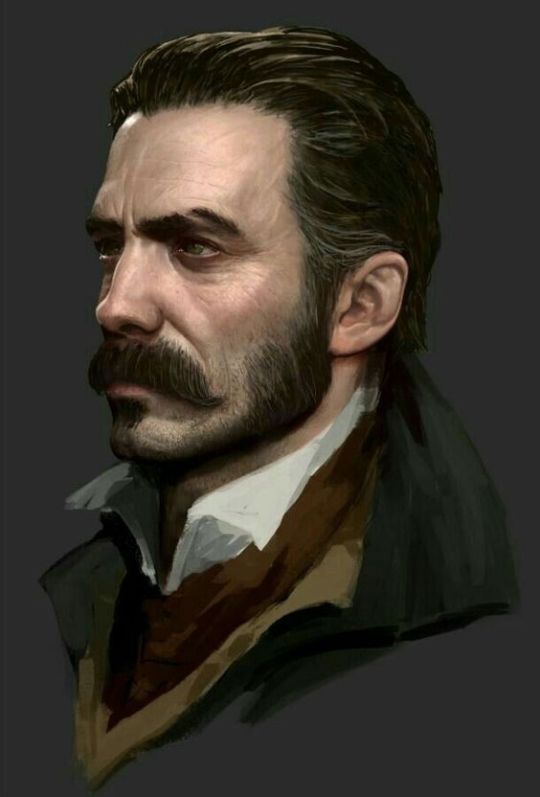
IV - THE EMPEROR
Meaning: This card is suggestive of stability and security in life. You are on top of things and everything in under your control. It is your hard work, discipline and self control that have bought you this far. It means that you are in charge of your life now setting up your own rules and boundaries.
Upright Card: Law and order, Power, Leadership, Father figure, Promotion, Authority
Reversed Card: Loss of authority, Immaturity, Control freak, Lack of discipline, Manipulative friends
Brennan “The Black” Sallwick: A man of honor, but also a man from a criminal background, Brennan Sallwick was the bastard son of a prostitute and originally named Karl Steel. He grew up on the streets of Townhill, living and stealing predominantly on the infamous Bowler Street, before joining the Bowler Street Boys gang. He quickly became an enforcer for the gang, making sure those in their territory paid their dues, and killing those who apposed their rule of the area. He soon found that there was money to be made as a killer, and began selling his skills as an assassin for hire, earning money for some time through murder, until he was run out of town by the Watch Officers. He became a sailor, serving in the merchant marine, as a whaler, and for a stint in the navy, before changing his name. Upon returning to the city, he picked up where he left off as an assassin, and eventually earned enough money to buy a fishing vessel. With the fishing vessel he earned enough money to buy another, and another, and eventually branched out into buying two whaling vessels as well. Simultaneously he was becoming more and more renowned as an assassin, with the wanted posters and people of the city dubbing him “The Crow” for the distinctive mask he wore. He was at the peak of influence a non aristocrat could reach before his daughter was hung up on a lamppost for “knowing another of her sex in an intimate manner,” and though he had arrived to late to save his daughter, he had managed to save his daughter’s lover Anastasia.
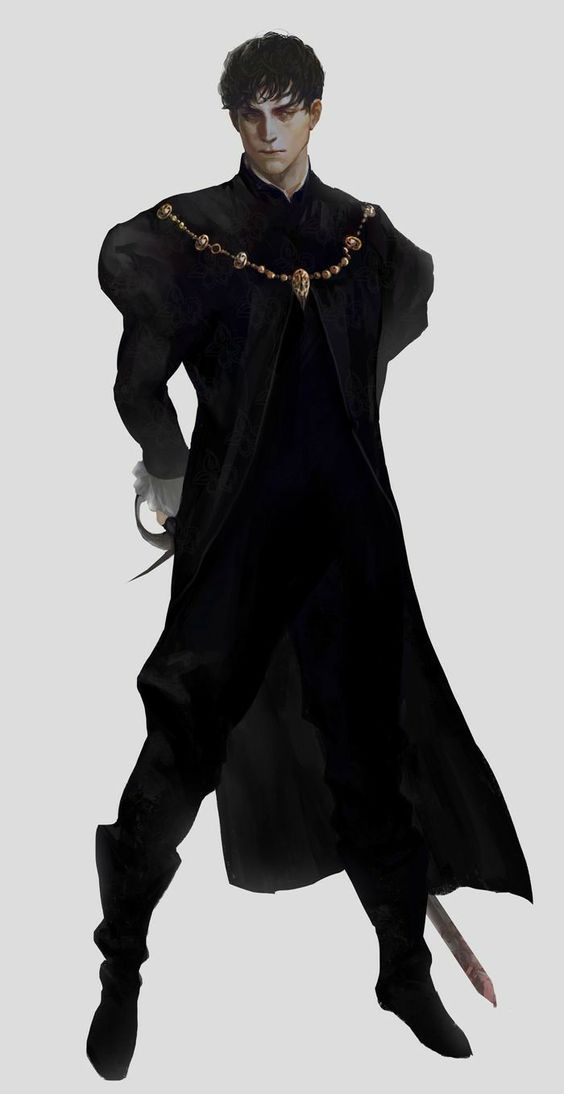
V - THE HIEROPHANT
Meaning: Hierophant stands for tradition and convention. It can represent marriage in an arranged setup. It can also mean a teacher or counselor who will help in learning / education of the querent.
Upright Card: Seeking counsel or advice, Marriage, Tradition, Religion, Learning, Spiritual guidance, Education
Reversed Card: Breakdown, Rejection of family values, Abuse of position, Poor counsel
Father Noah Lasseter: Noah Lasseter managed to earn his unsavory position of Parish Priest to the Docks District (more colloquially known as Slum City) by being loudmouthed and brazenly against the grain while learning the trade of priest at the Hiller Mouth Monastery. Though deeply religious, he has developed a strong opinion on how the Church practices their worship of the All Father, believing that most Church authorities focus far to much on the “Judge the Wicked” aspect rather than the “Defend the Meek” aspect. And though he does believe that Judge the Wicked has its place, he instead chooses to interpret the Commandments much more literally as directions to creating peaceful and safe communities, rather than judging all who are different as monsters who threaten that community. This rebellious and outspoken attitude earned him the ire of many of his colleagues, who placed him in what many saw as the worst district, far from the aristocrats and business owners who’s donations could fill the coffers of the church. But, the Docks District was exactly the kind of place that a man like Father Noah was needed, where his accepting attitude made him popular among the so called “deviants” who had been banished to the slums. And it just so happened that his church was the childhood place of worship for one Brennan “The Black” Sallwick.

VI - THE LOVERS
Meaning: The Lovers represent relationships and choices. Its appearance in a spread indicates some decision about an existing relationship, a temptation of the heart, or a choice of potential partners. Often an aspect of the querent's life will have to be sacrificed; a bachelor(ette)'s lifestyle may be sacrificed and a relationship gained (or vice versa), or one potential partner may be chosen while another is turned down. Whatever the choice, it should not be made lightly, as the ramifications will be lasting.
Upright Card: Falling in love, Commitment, Choices, Being at a crossroads, Partnerships
Reversed Card: Separation, Infidelity, Relationship issues, Broken relationship
Anastasia Allencroft, Sara Sallwick: Anastasia Allencroft, rightful heiress to the Allencroft titles, and Sara Sallwick, heiress to the Sallwick fortune and fleets, met by chance at a party as their respective dancing partners were friends. They were fast friends, and quickly more than friends, with each simultaneously experiencing their first love and experiencing true fear all at once. They knew that the feelings they felt were against Church teachings, and that if anyone knew of their relationship they would be tried for Sexual Degeneracy and hanged. But no matter how many times they tried to break off the relationship, they kept finding themselves returning to one another, and began to make plans on how they could remain with one another forever if possible. They could never be married, but they could find a way to make it work. But of course, nothing lasts forever,and the Inquisitors put an end to their relationship.

VII - THE CHARIOT
Meaning: The Chariot is a card about overcoming conflicts and moving forward in a positive direction. One needs to keep going on and through sheer hard work and commitment he will be victorious.
Upright Card: Overcoming obstacles, Will power, Drive, A journey, Confidence, Ambition
Reversed Card: Scattered energy, Lack of direction, Self doubt
Fisher Watcher: The Fisher Watcher is a colloquial name for a type of eel that lives in the waters surrounding the Isles and the northern coasts of Eropa. They are peaceful creatures, and are known for coming to the surface of the water to watch fishers, and consequently scaring away all the fish. For a long time, before humans fully learned how to navigate the oceans safely, they were believed to be dangerous sea monsters, but as humans spread onto the waves this proved to be false, and now they are seen as omens of peace and good luck.

VIII - STRENGTH
Meaning: Strength predicts the triumphant conclusion to a major life problem, situation or temptation through strength of character. It is a very happy card if you are fighting illness or recovering from injury.
Upright Card: Virility, Inner strength, Potency, Vitality, Confidence, Self-belief, Enjoying power
Reversed Card: Hedonism, Self-doubt, Lacking courage, Lack of self-control, Vanity
Townhill: Townhill has been the most important city in the Isles since humans first began to settle into permanent settlements and towns. Its location on the ocean makes it ideal for trade, and the multiple peaks and hills that rise in the north make it an easily defensible city. It quickly rose to prominence as a major trading hub and fishing town, and after King Tyrus Willun of Mournly conquered the rest of the Isles and became the first Emperor, he named it the capitol. It has seen many riots, multiple outbreaks of Blood Cough, a coup, a revolutionary army, and uncountable small tragedies and triumphs. And yet still it stands, proud and strong as a mountain.

IX - THE HERMIT
Meaning: The Hermit suggests that you are in a phase of introspection where you are drawing your attention inwards and looking for answers within. You are in need of a period of inner reflection, away from the current demands of your position.
Upright Card: Soul-searching, Introspection, Solitude, Withdrawn from society, Meditation, Self-reflection
Reversed Card: Misfit, Withdrawing from loved ones, Exile, Sadness, Loneliness
Keeper Thomas Leolid: Thomas Leolid has grown up in the Hiller Forest, coming from a family of Keepers going back generations. He is young for the job, having had the position thrust on him rather suddenly when both his father and eldest brother died of Blood Cough, but goes about his work diligently and with care. He is a believer in the holy nature of the forest, and is proud to tell the monks and students at the Hiller Mouth Monastery that his sector of the forest is the most beautiful and well cared for. He was not to popular however due to his age as compared to the other Keepers, and due to the fact that he was one of the few who considered Noah Lasseter a friend and worthy Parish Priest, with them both of the sharing similar interpretations of the Commandments.

X - WHEEL OF FORTUNE
Meaning: A common aspect to most interpretations of this card within a reading is to introduce an element of change in the querent's life, such change being in station, position or fortune: such as the rich becoming poor, or the poor becoming rich.
Upright Card: Changes, Opportunity, Luck, Destiny, Winning, Chance
Reversed Card: Mishap, Unforeseen setback, Bad luck, Misfortune, Disappointment
Hemena of Fortunes and Fate: Hemena is a caretaker of Fate and one of the chief spirits who watches over the Aether, watching how it affects peoples fortunes. She is one of the first humans, who upon death was allowed to continue living by the Stranger, but only in exchange for constantly monitoring the fortunes and fates, never being able to truly enjoy life’s wonders as she could when she was alive. She is seen as a sad figure, the first soul to fall victim to the Strangers tricks, but also as a matronly figure of sorts, helping humanity continue onward’s.
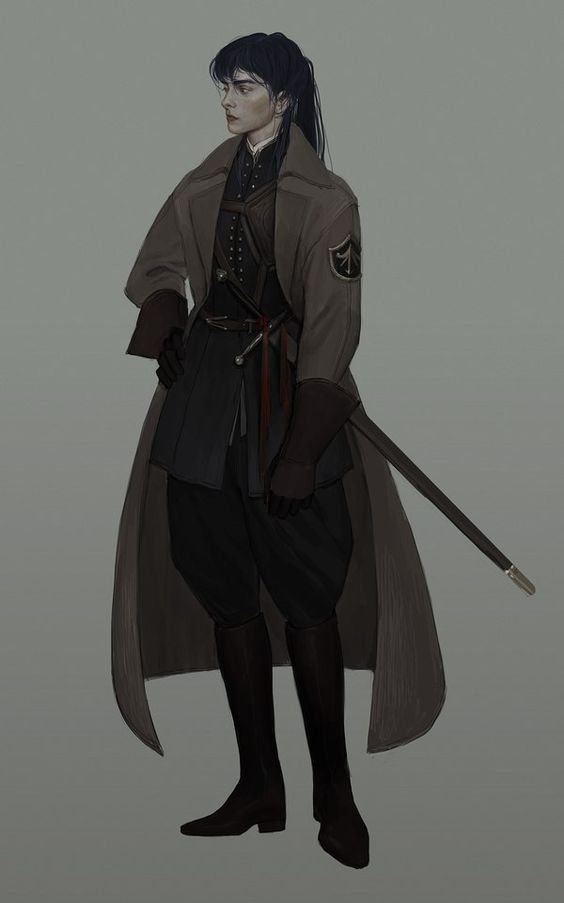
XI - JUSTICE
Meaning: The Justice card indicates that the fairest decision will be made. Justice is the sword that cuts through a situation, and will not be swayed by outer beauty when deciding what is fair and just.
Upright Card: Fairness, Justice, Cause and effect, Balance and equilibrium, Responsibility
Reversed Card: Lack of accountability, Unfair treatment, Dishonesty, Legal flaws, Imbalance
The Wardens: The Warden’s are a branch of law enforcement similar to a sheriff. They are elected officials, and can come from many walks of life, though they are typically either soldiers of Watch Officers before hand. There are many Wardens throughout the city, with each having their own jurisdiction to watch over. Unlike sheriff’s, and especially unlike regular Watch Officers, the Wardens are given much more free reign in how they go about their duties, and have far fewer regulations holding them back. Other than their jacket, they are required to equip themselves, choose who they work with, (or not even work with others at all) and are considered by many to be above the law, and are tasked with preserving law and order through any means necessary. In terms of legal authority, they are one step below a Justice of Peace and Law. Though it is preferred and requested of the Wardens that they take in the criminals they encounter alive, most interactions are left up to the Wardens discretion, and if they say the person they were after deserved to die, it is generally accepted.

XII - THE HANGED MAN
Meaning: The Hanged Man is the card that suggests ultimate surrender, sacrifice, or being suspended in time.
Upright Card: Letting go, Breaking old patterns, Circumspection, Suspension, Metamorphosis
Reversed Card: Missing an opportunity, Inability to change, Egotism
The Stranger: The Stranger is a mysterious, nebulous, and controversial figure in the universe. Some believe he is the All Father, master of the universe. Others believe that he is an opposite of the All Father, a tricky and dangerous figure opposed to the All Father’s teachings. But, no matter what he is, it is believed that he is a necessary evil, as he is the ultimate authority in the Empty, the place between worlds, and that he is the keeper of the Aether along with the spirits who he has tricked into their positions. It is not actually known if the Stranger even has a gender, but he has always been called male due to the fact that he typically appears to mortals as a dapper man of the aristocracy.

XIII - DEATH
Meaning: Unlikely that this card actually represents a physical death. Typically it implies an end, possibly of a relationship or interest, and therefore implies an increased sense of self-awareness.
Upright Card: Endings, Severe illness, Profound change, Letting go of attachments, Failure, Mortality
Reversed Card: Living unaware, Depression, Long terminal illness, Resistance to change, Delayed endings
Tim Killington: A young man and general low life, also under the employ of Red Rudy, he often acts as an informant and spy, helping the Crow get an understanding of the residency’s or places of business his targets are staying at. Tim grew up with his brother Ben as a street urchin, and began working as a message boy for the various criminals in the Docks District to make money. He little by little worked his way up in position, eventually giving out information he had collected in his travels around the district. . . for the right price of course. He is rather cocky and laid back, and smokes enough to choke a horse. Despite his persistently cheery and somewhat egotistical attitude, it cant be denied that he has the dirt on just about anyone, and if he doesn't he can get it. Due to his awareness of things going on around him, he has been instrumental in the rise and fall of many crime lords and gangsters over the past 15 or so years.
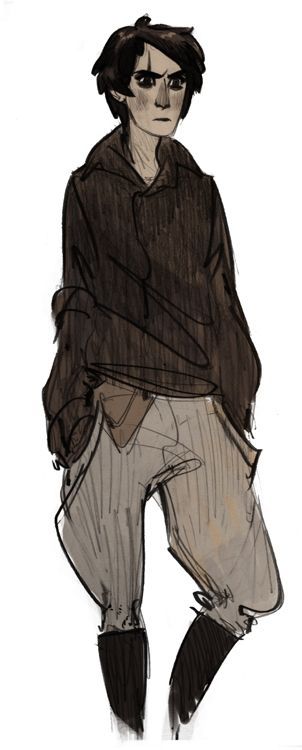
XIV - TEMPERANCE
Meaning: This card indicates that you should learn to bring about balance, patience and moderation in your life. You should take the middle road, avoiding extremes and maintain a sense of calm.
Upright Card: Connecting with your guides, Balance, Moderation, Harmony, Alchemy, Looking for divine intervention
Reversed Card: Disharmony, Imbalance, Onset of illness, Lack of patience
Ben Killington: The much more dour younger brother of Tim Killington. Like his brother, he grew up as a street urchin, but made his way by becoming a thief, a career choice that continues on now into his early adulthood. Though technically under the employ of Red Rudy, (and he does indeed kick up to the crime boss,) he is rather indifferent to the politics of the underworld he inhabits, simply trying to make a living and doing what he has to do to survive.
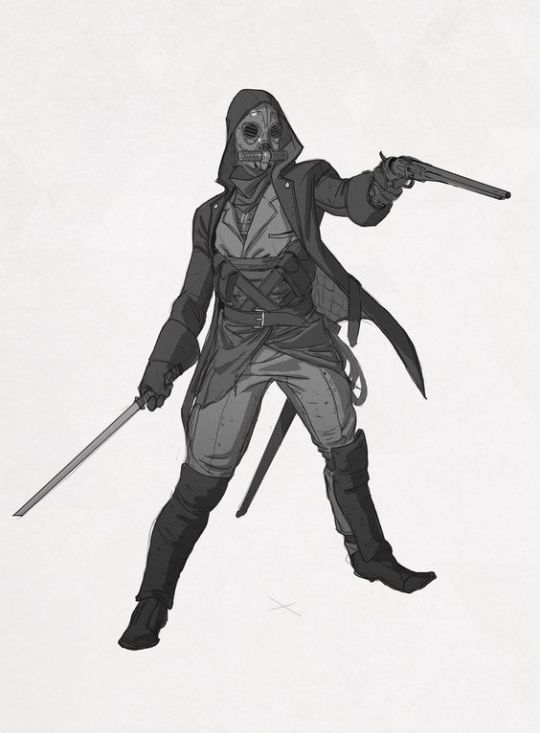
XV - THE DEVIL
Meaning: It represents being seduced by the material world and physical pleasures. Also living in fear, domination and bondage, being caged by an overabundance of luxury, discretion should be used in personal and business matters.
Upright Card: Temptation, Unhealthy relationships, Enslavement, Materialism, Bondage, Fear, Feeling trapped
Reversed Card: Freedom from restraints, Breaking from addictions, Divorce
Carver: Carver is an assassin of similar reputation and skill as the infamous Crow. Not much is known about him, other than that he frequently kills those who are considered enemies of the Church, leading many to believe that he is under their employ. Though no one knows who he really is, most believe that he is in some way indebted to or otherwise stuck under the control of the Church, and is being forced to do their bidding.

XVI - THE TOWER
Meaning: The Tower is commonly interpreted as meaning danger, crisis, destruction, and liberation. It is associated with sudden unforseen change.
Upright Card: Unexpected change, Renovation, Catastrophe, Destruction, Accident or damage
Reversed Card: Obstacles, Volatile situation, Losses, Illness
The Attack On Allencroft Manor: With the discovery of the relationship between Anastasia Allencroft and Sara Sallwick came the Inquisitors, the ultimate authority on the laws and commandments of the Church. While the Isles has no official religion, there are a series of laws that state that Church business and law may be upheld by agents of the Church, but that the government will give no aid in these endeavors. Over time however, these laws have been questioned more and more due to the increasingly belligerent and violent tactics employed by the Church. The Inquisitors struck during a dinner party, in which both Anastasia and Sara were in attendance. They were initially turned away by a servant at the door, after which they returned with guns and fire bombs,forcing their way into the building and killing two servants who tried to stop them. The party was sent frightened into the night, Lord Allencroft was shot and killed, and Sara Sallwick was hung from the rafters. When Brennan Sallwick arrived, under the guise of the Crow, to save his daughter, he instead only managed to make it out with his daughters lover. In vengeance, the Inquisitors burned the house to the ground. But, their actions only soured the public opinions of them even further. After all, if even aristocrats weren't safe from the Churches power, who was?
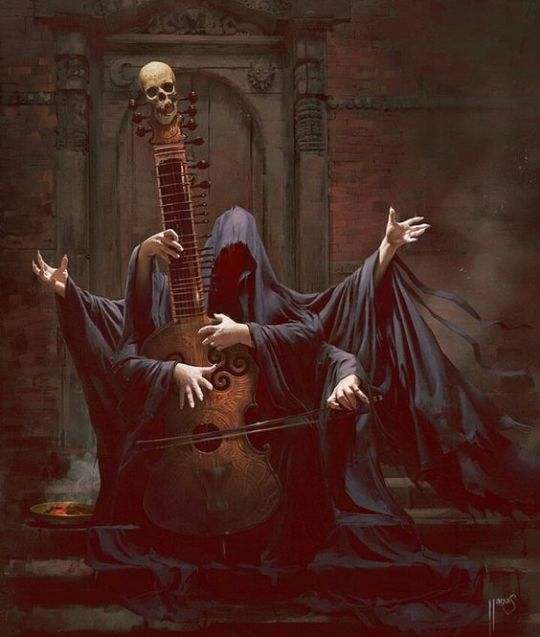
XVII - THE STAR
Meaning: When the Star card appears, you are likely to find yourself feeling inspired. It brings renewed hope and faith and a sense that you are truly blessed by the universe at this time.
Upright Card: Good health, Opportunities, Spirituality, Astronomy, Inspiration, Hope
Reversed Card: Despair, Missed opportunities, Disappointments, Illness
Mirel The Muse: Mirel the Muse is of unknown origin, but there are some theory's as to how he came to be. The most common belief is that Mirel is the spirit of a dead saint, who was fond of art and music. To be able to continue playing and creating his art forever, Mirel made a deal with the Stranger that if he became the Muse, spirit of all art and creation, that he could continue to play forever. But, as in all deals made with the Stranger, there was a catch, and Mirel found himself a slave of a single alleyway where he could no longer go out and see the things that inspired him. Now all the music he plays is filled with despair.
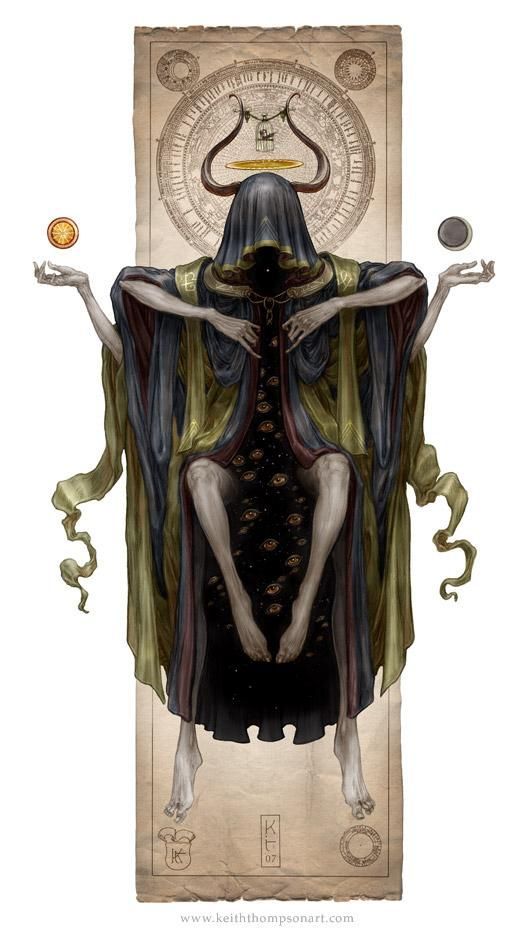
XVIII - THE MOON
Meaning: The Moon is a card of illusion and deception, and therefore often suggests a time when something is not as it appears to be. Perhaps a misunderstanding on your part, or a truth you cannot admit to yourself.
Upright Card: Difficult period, Insecurity, Mental confusion, Deception, Hidden things, Fear
Reversed Card: Unhappiness, Release of fear, Insomnia, Unusual dreams, Mysteries unveiled
Corlina of Secrets: Corlina was once a priest, who used his position to manipulate people into paying large sums of money to the church, which he then pocketed himself. When he died, he carried this secret with him, and his guilt prevented from ever being able to rest peacefully, or ever pass on. Stuck forever in the Aether, the Stranger offered a deal, keep the secrets of the world, and walk the Earth once more. But, the deal was skewed, the secrets of the world weighed heavily on the shoulders of Corlina, who was stuck with unceasing guilt and no release for all eternity.

XIX - THE SUN
Meaning:The card portends good fortune, happiness, joy and harmony. It represents the universe coming together and agreeing with your path and aiding forward movement into something greater.
Upright Card: Joy, Enlightenment, Material happiness, Marriage, Success, Vitality
Reversed Card: False impressions, Lack of clarity, Low Vitality, Sadness
The Empire of the Twelve Isles and All Her Colonies: No matter what small tragedies and personal conflict occur in the Empire, it is a large nation, and marches ever onward. The philosophers and scientists always discover new things, beautiful art is produced in the cities. The oil from the northern isles fuels the vast fleets of fishing boats and whaling ships. The Imperial Navy keeps enemies from the shores. Coffee and fruit from the colonies feed millions.
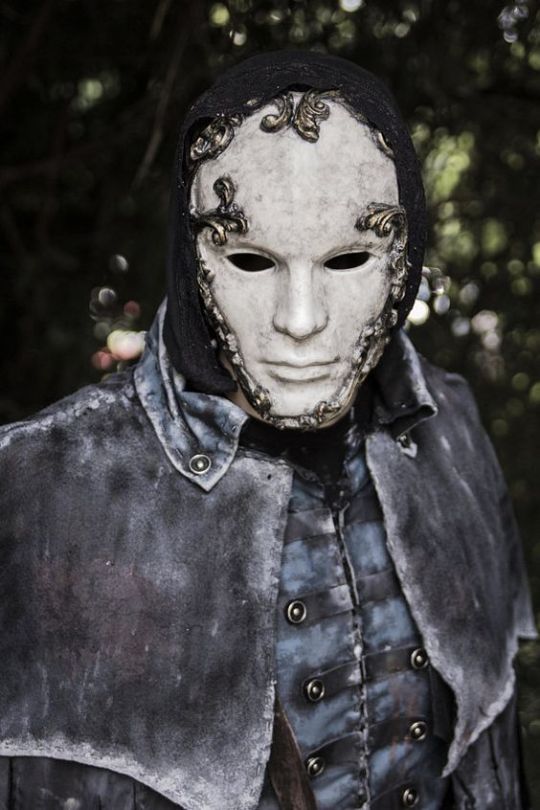
XX - JUDGEMENT
Meaning: This card is referred to as a time of resurrection and awakening, a time when a period of our life comes to an absolute end making way for dynamic new beginnings.
Upright Card: Decision making, Transition, Renewal, Redemption, Awakening, Reincarnation
Reversed Card: Stagnation, Self-doubt, Poor logic, Poor or hasty judgement
The Inquisitors: The defenders of the Church, the judgement of sinners, the destroyers of heretics. The Inquisitors are many things, most of them frightening to the average citizen of the Empire. To normal people, the Inquisitors represent powerful forces beyond their control making decisions about their lives. They were not always this way however, and originated as knights who would wander the land killing monsters, or protecting monasteries from raiders. But over time, as the raiders were eclipsed by standing armies and the monsters were eradicated from the world, they became the militant arm of the church, dedicated to seeking out and destroying anything deemed heretical.
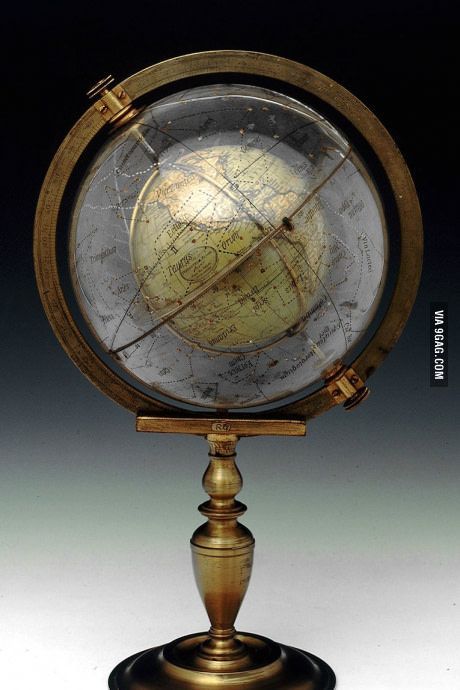
XXI - THE WORLD
Meaning: The World represents an ending to a cycle of life, a pause in life before the next big cycle beginning with the fool. It is an indicator of a major and inexorable change, of tectonic breadth.
Upright Card: Successful conclusions, Possibilities, Fulfillment, Achievement
Reversed Card: Delayed success, Lack of completion, Stagnation, Failed plans
The World: No matter what we do, the world turns and turns, indifferent to our existence. The Empty shows what we truly are, the Aether spews its magic, and spirits roam the ground and sea alike. All will be well, given enough time.
#oc's#OC#oc story#oc world#worldbuilding#my writing#my ocs#not my art#fantasy#steampunk#steampunk story#fantasy religion#fantasy realm
2 notes
·
View notes